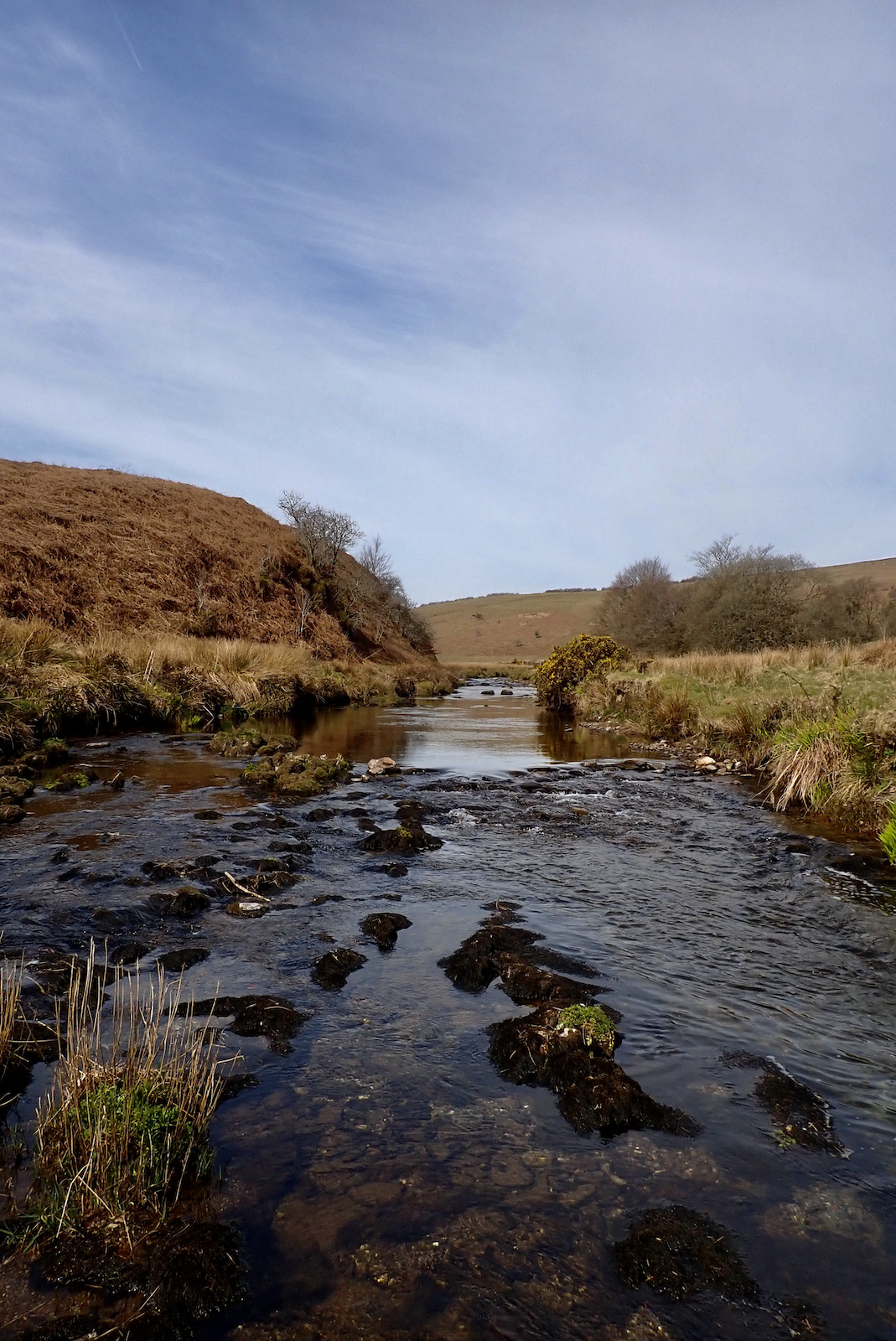In form Bulldog Fisheries have announced the date of their May Competition that will probably be the last until the Autumn. Big fish have been stocked so should be a good day.

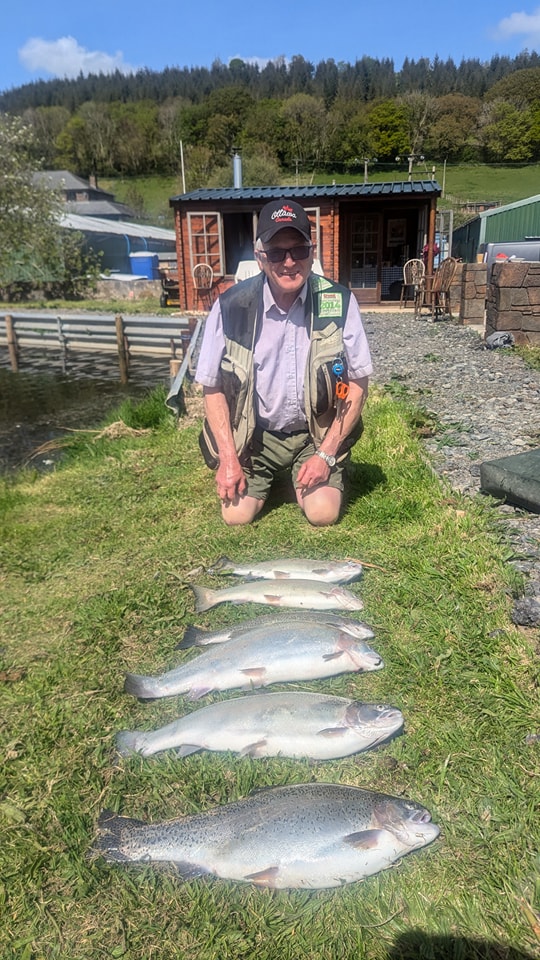
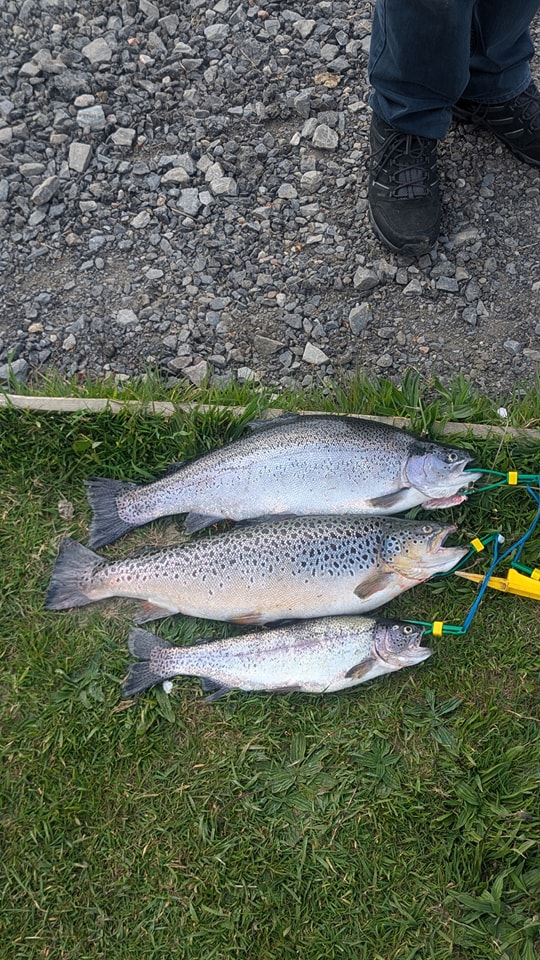
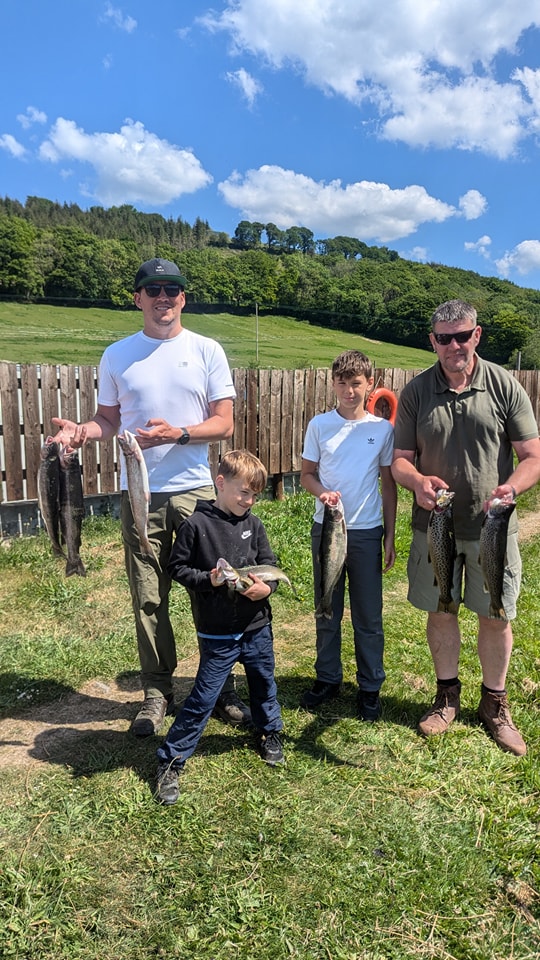
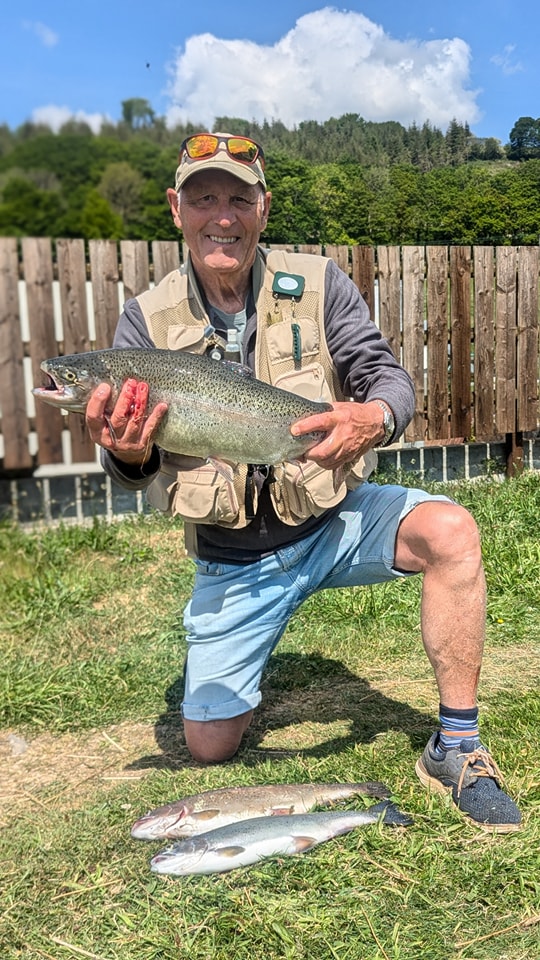
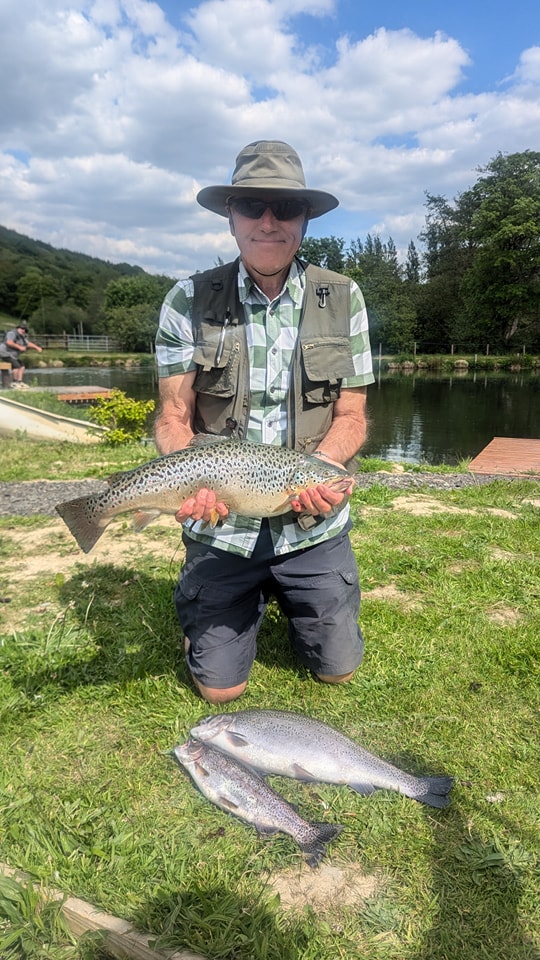
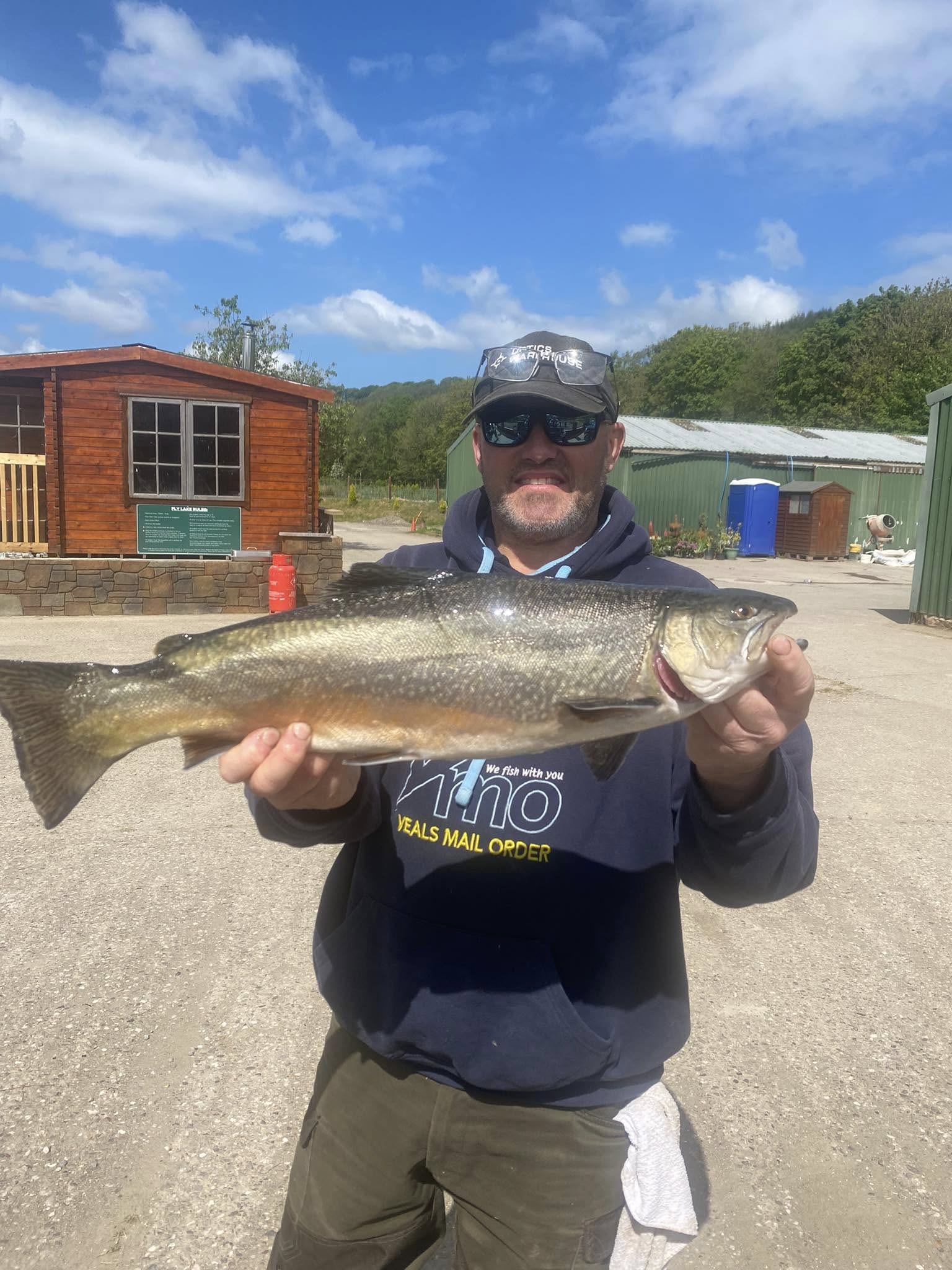
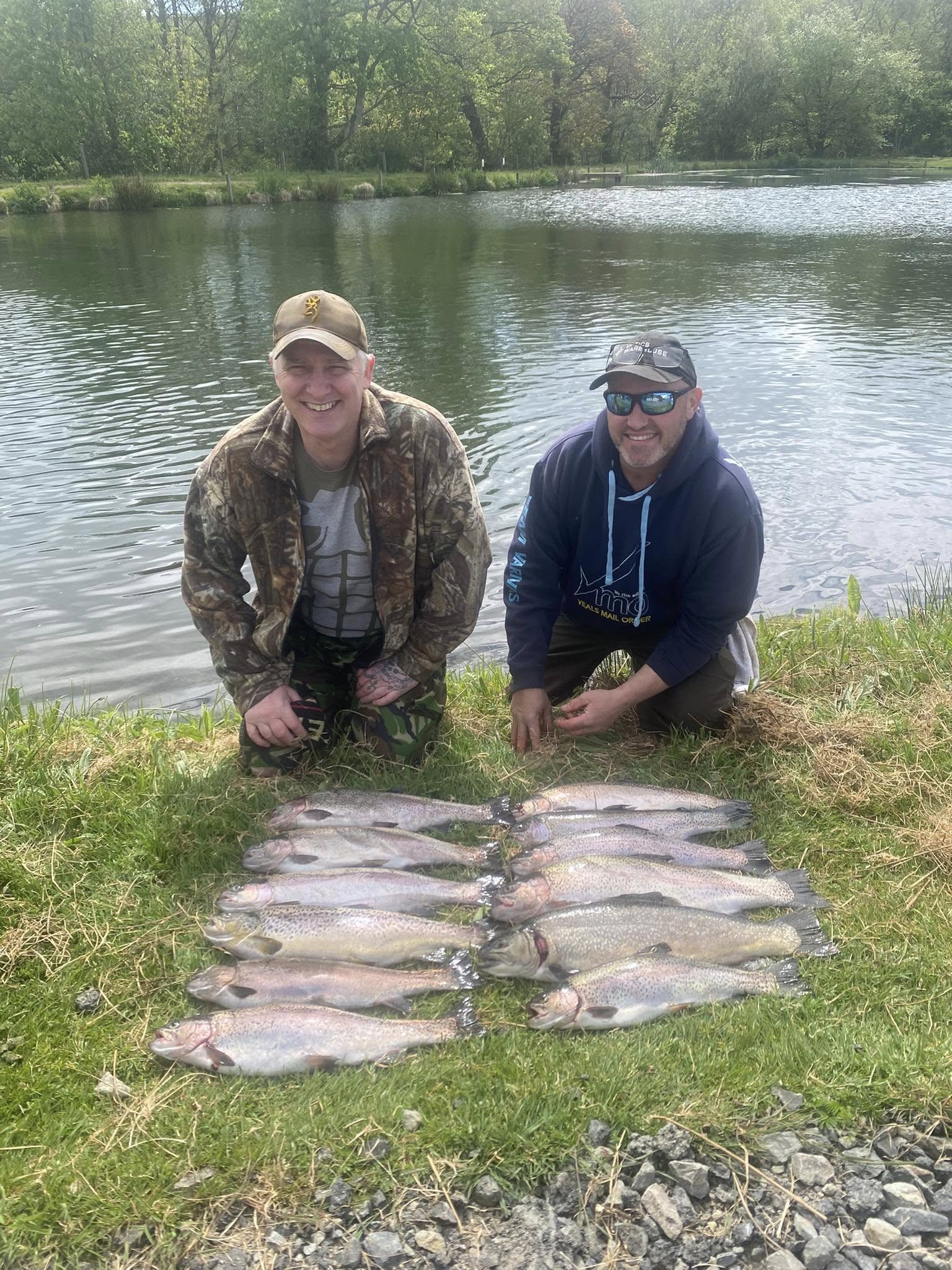

Arriving at Winsford in the heart of Exmoor my wife Pauline and I were delighted to find the Village Hall packed with attendees all assembled for this conference focussing on the waters of Exmoor. Amongst the crowd were many familiar faces all of whom I knew shared a passion for rivers. After coffee and cake we took our seats to listen to the speakers the details of which I have added at the end of this feature.
Kate O Sullivan, Chair of the Exmoor Society welcomed us to the venue and gave a brief introduction highlighting the overall concerns relating to our rivers and efforts and collaborations to address the many issues.
Professor Charles Foster delivered an evocative story of a salmons life journey from its birthplace in the headwaters of the Exe to the sea, to its distant feeding grounds of Norway and Greenland and then its epic and miraculous journey back to its home water. The tale was a master class in story telling captivating the audience without a power-point presentation. The story was punctuated by the multiple perils faced by the salmon at each stage of its life long journey. The complexities of a salmons epic journey were the perfect start to the day’s proceedings in effect setting the agenda to follow..
The salmons strive to stay alive is so strong from birth to death in a constant evolutionary stream of life that has endured for millennia that is today threatened by mankind’s disregard for the natural world.
Mark Lloyd Chief Executive of the Rivers Trust gave a passionate assessment of the state of the nation’s rivers. In brief too much, too little, too dirty, too hot and too little nature. The situation has accelerated since the 1970’s with extremes of temperature and rainfall. Agriculture, Abstraction and urban pollution from sewage outfalls etc all impacting and overlapping to exacerbate the issues.
Mark then highlighted some of the solutions and how working with nature can help to address.
Professor Alistair Boxall delivered a very concerning and thought provoking presentation highlighting the issue of pharmaceutical pollution of the National Parks. Sampling of water across National Parks showed high levels of pharmaceutical residue including paracetamol, metformin, caffeine, carbamazepine, gabapentin and fexofenadine. All commonly used by many in society and discharged into sewage networks that are not designed to remove them. The long term effects on our rivers are not yet known.
Professor Sir Dieter Helm delivered an economists perspective on a fresh approach to how we address the many issues using a catchment based approach. I found his delivery enlightening and inspiring as he pointed out the uncomfortable truth that we are all collectively to blame. He set out sensible solutions to the issues highlighting that what we do is not sustainable. Food production, sewage infrastructure we create the demand yet we do not want to pay. We need to rethink, design, polluters must pay and those who do not should be rewarded for their endeavours.
Question time was skilfully coordinated by Mark Lloyd who introduced the panel.

Each panellist introduced themselves highlighting their work.
Dr Rose O’ Neil talked about the vital importance of rivers that flow through National Parks.
Dr David Smith outlined the work of South West Waters dedicated team who look after the regions catchments and rivers. South West Water are large landowners and invest in invasive species control and many fish passage schemes. Upstream Thinking is one of the company’s flagship projects and focuses on the headwaters that are vital to a catchments overall health. David acknowledged the need for future water storage and told of collaboration between Wessex Water and Bristol Water with the planned construction of Cheddar 2 adjacent to the existing Cheddar Reservoir that will help to preserve Wimbleball for the South West region.
James Thomas delivered an extensive and passionate overview of the work being undertaken by the National Trusts Wetlands Team across North Devon. James explained the historic connections of landscapes to water and how working with nature helps to improve water quality, reduce flood risk, act as carbon storage, improves drought resilience, and boosts opportunities for wildlife both increasing abundance and biodiversity.
Toby Diggens talked enthusiastically and with infectious optimism for setting rivers free using descriptive illustrations and art work to portray the long term benefits of restoring natural meandering flow of rivers.

A Personal Perspective
Walking out of the Village Hall we were inspired by the passion shared by all the speakers to a receptive audience. The fact that so many came together on this beautiful spring day brings hope for the future.
The problems that face our rivers are many and extremely complex. I have long held the belief that rivers are the arteries of the land. As an angler my connection with rivers has been life long and I have witnessed a dramatic and sad decline in my lifetime. I was able to share this story as we embarked upon a strenuous walk that took us to a high viewpoint that enabled us to view the beautiful valley of the river Exe.
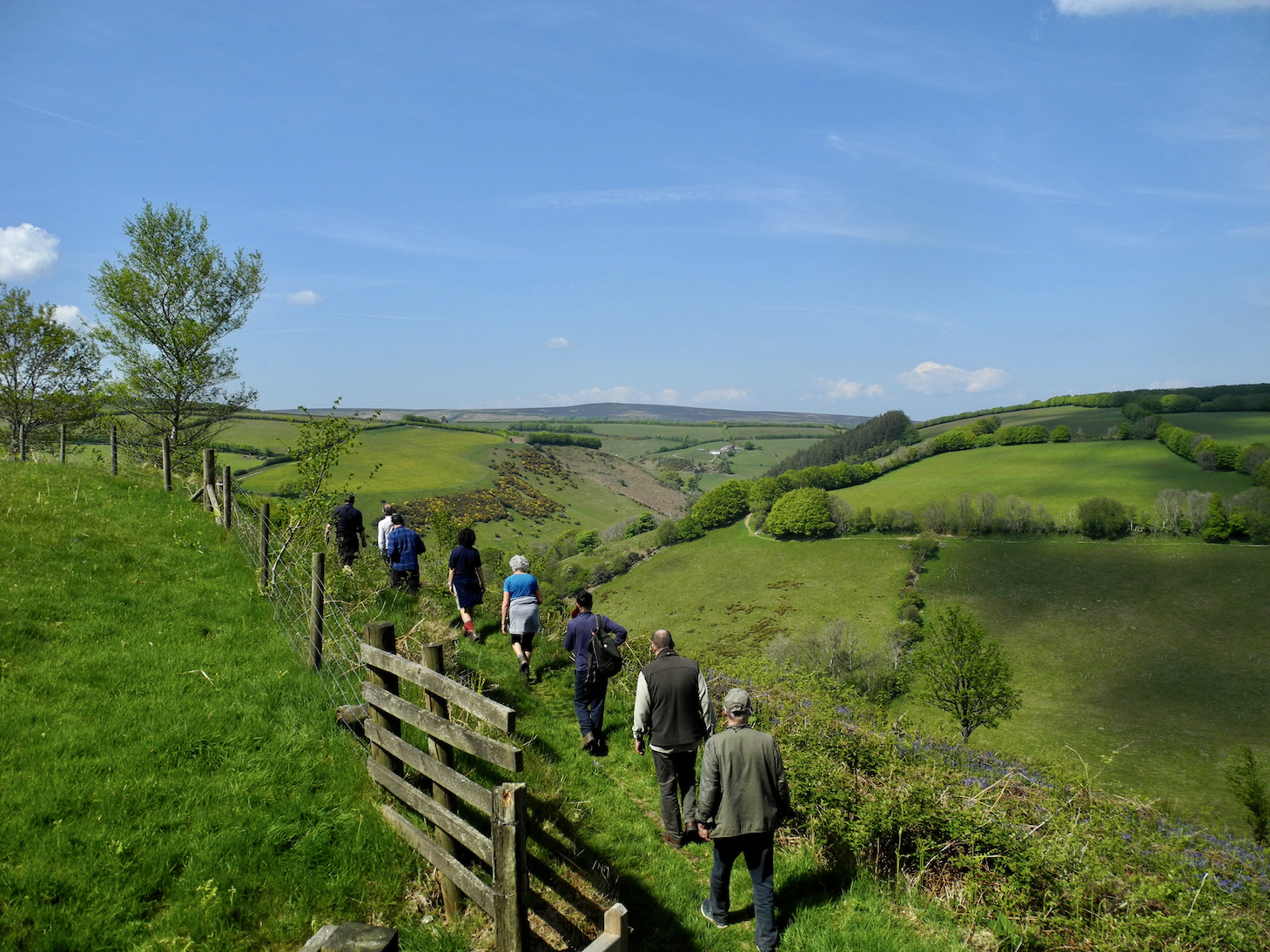
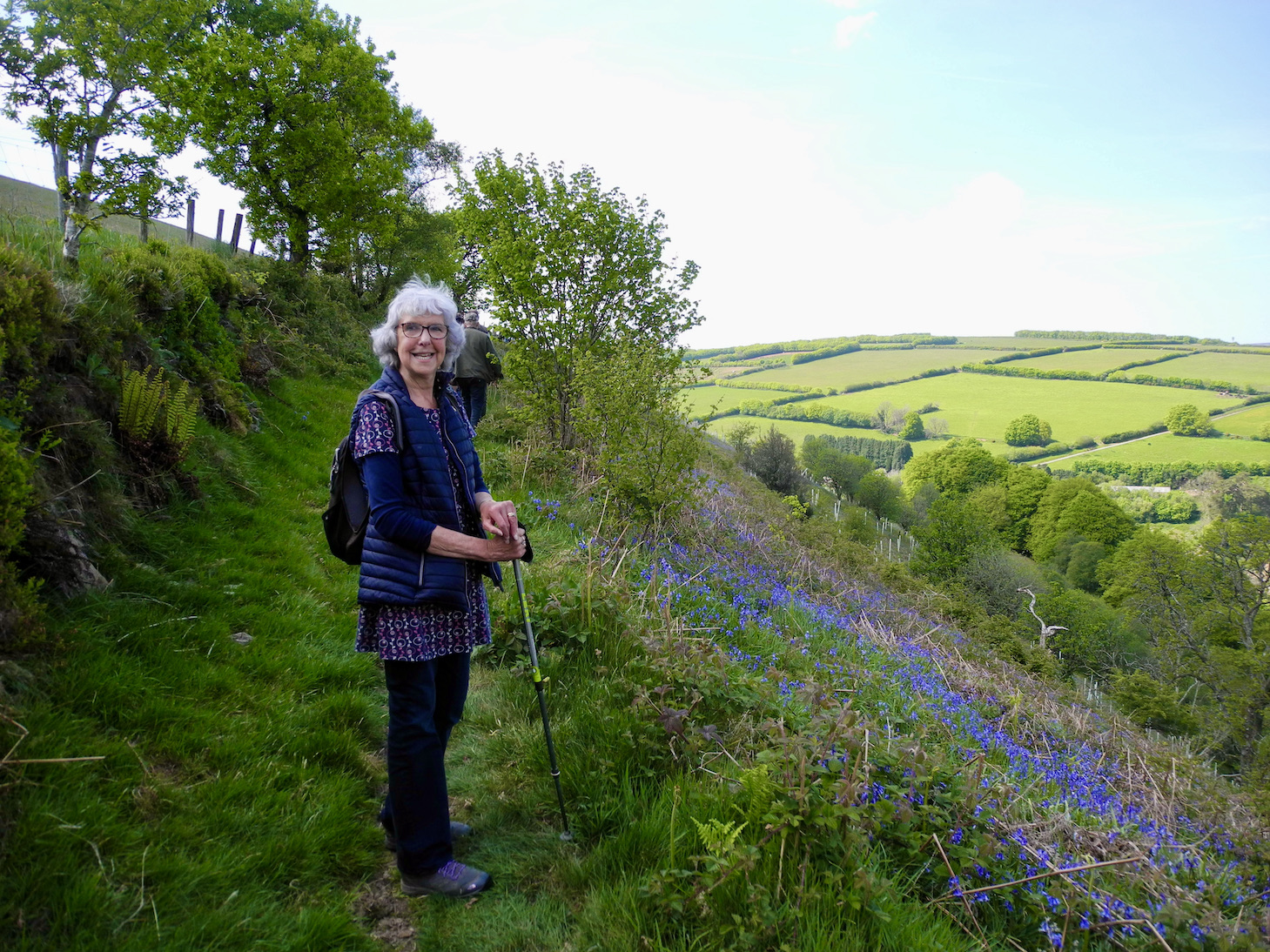
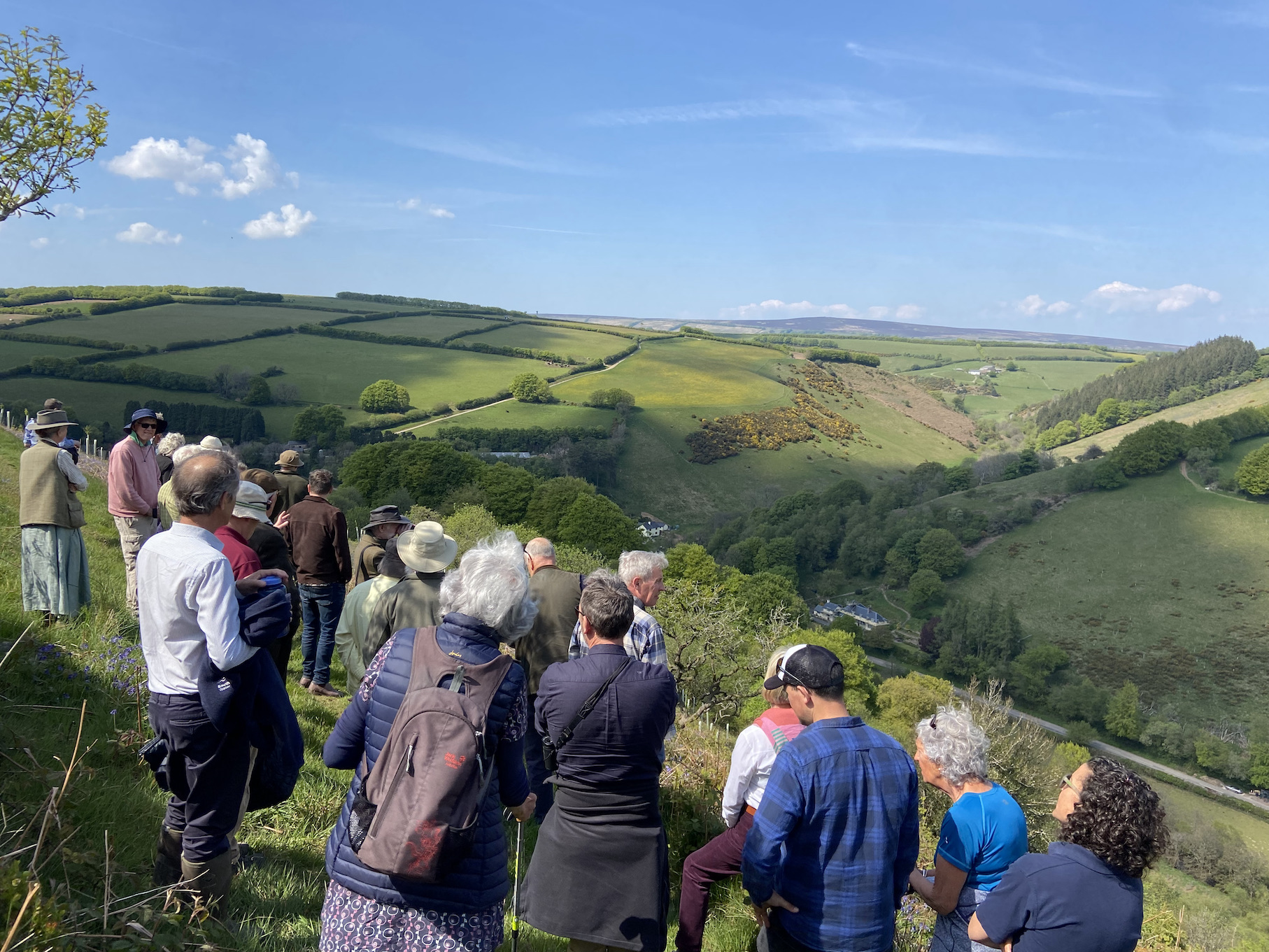
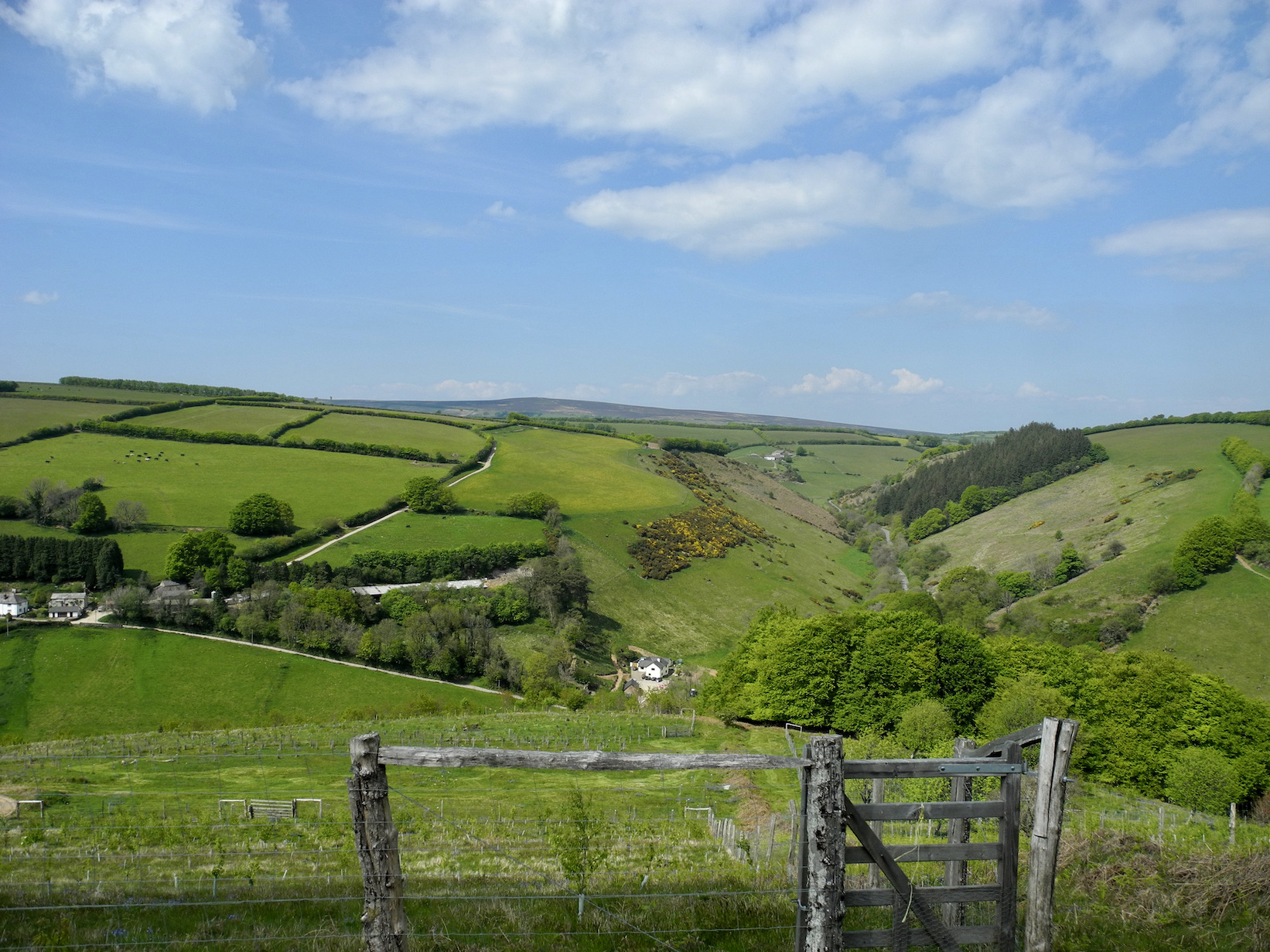
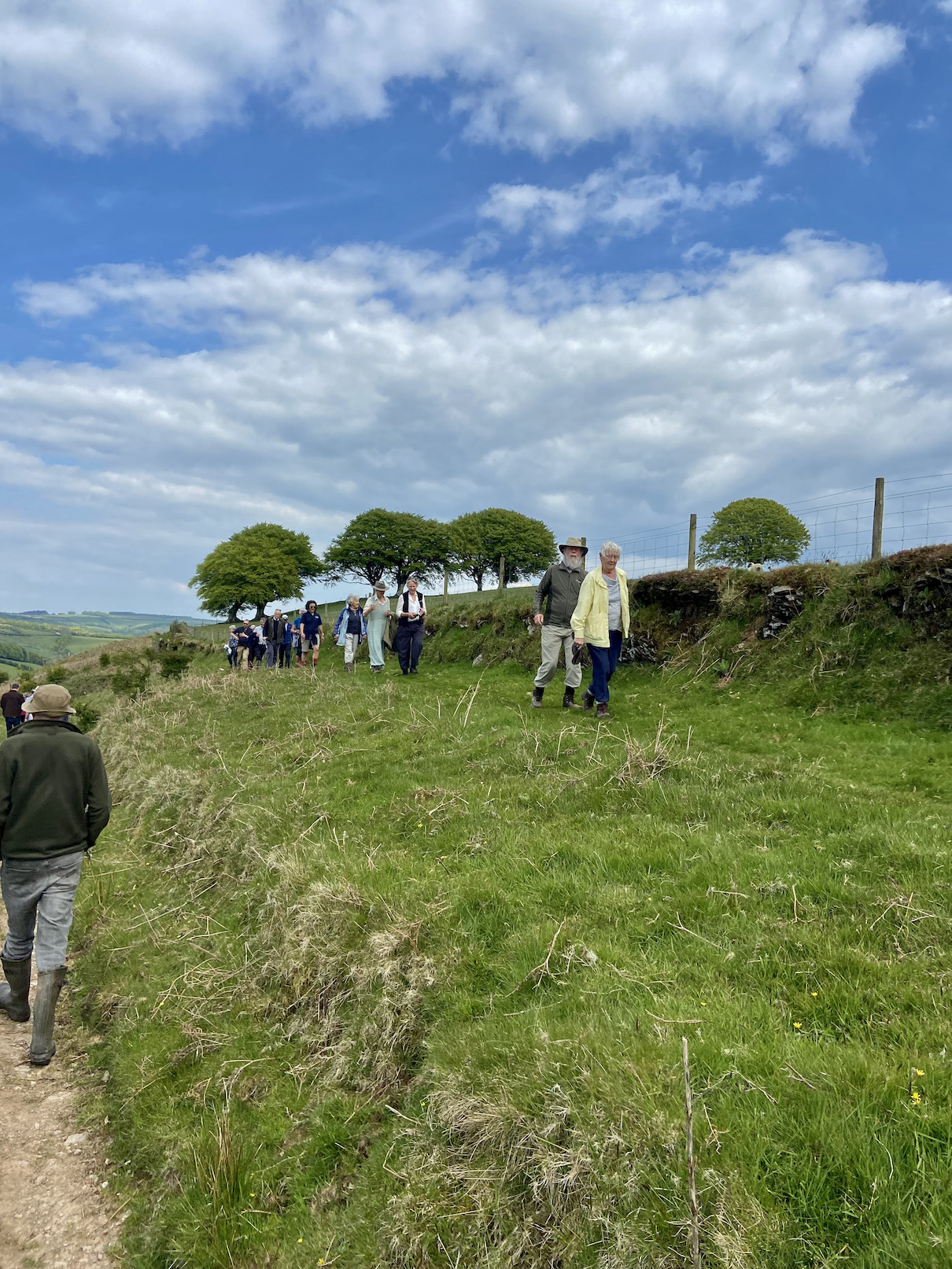
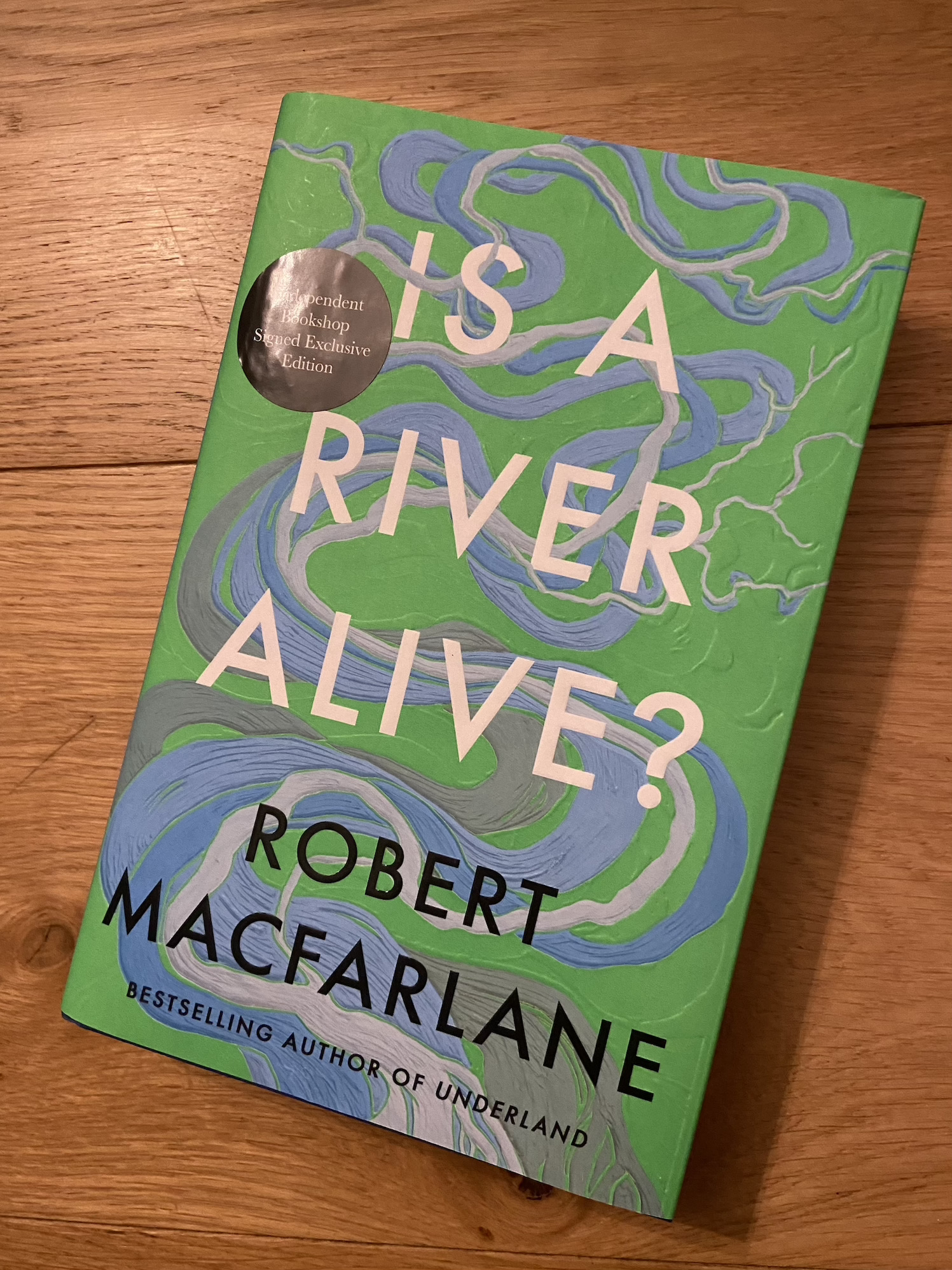
I bought the new book from Seven Fables by acclaimed author Robert Macfarlane who asks the question ‘ IS A RIVER ALIVE’ ? I look forward to reading this tome. But in answer to the question if we consider the entire planet a living entity then is it not sensible to consider the rivers as the veins and arteries that carry the planets life blood for water is vital to life on earth.
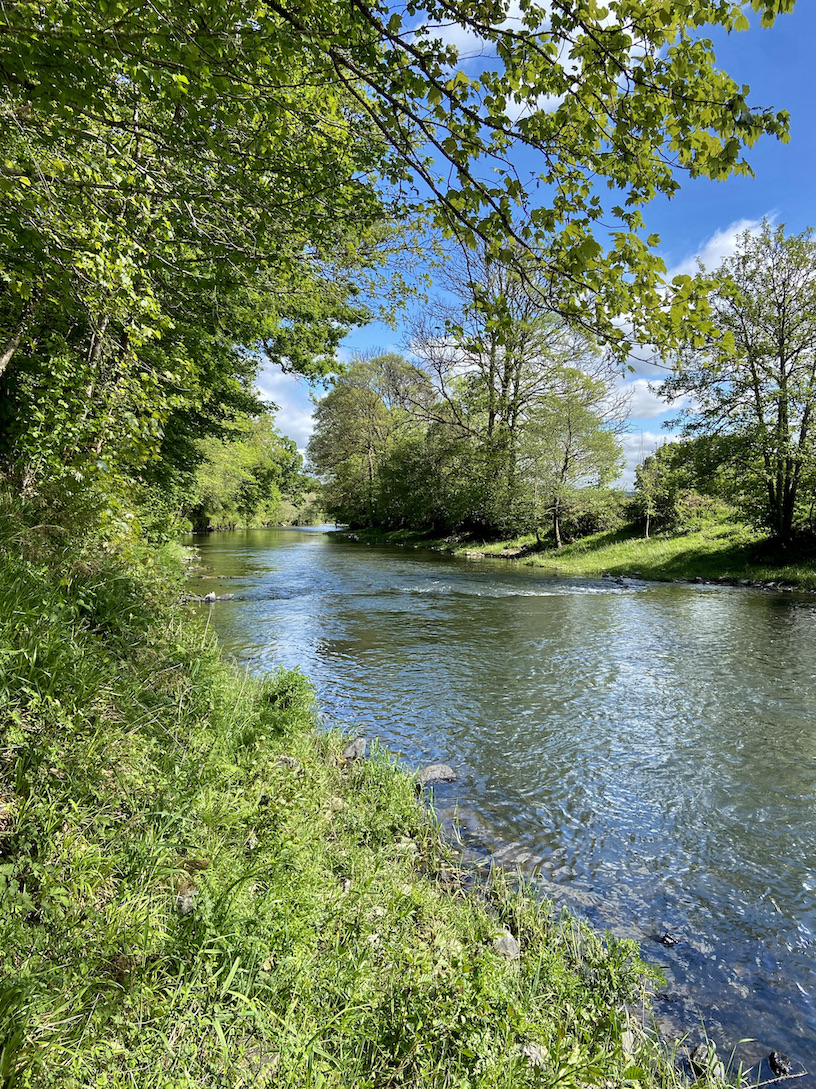
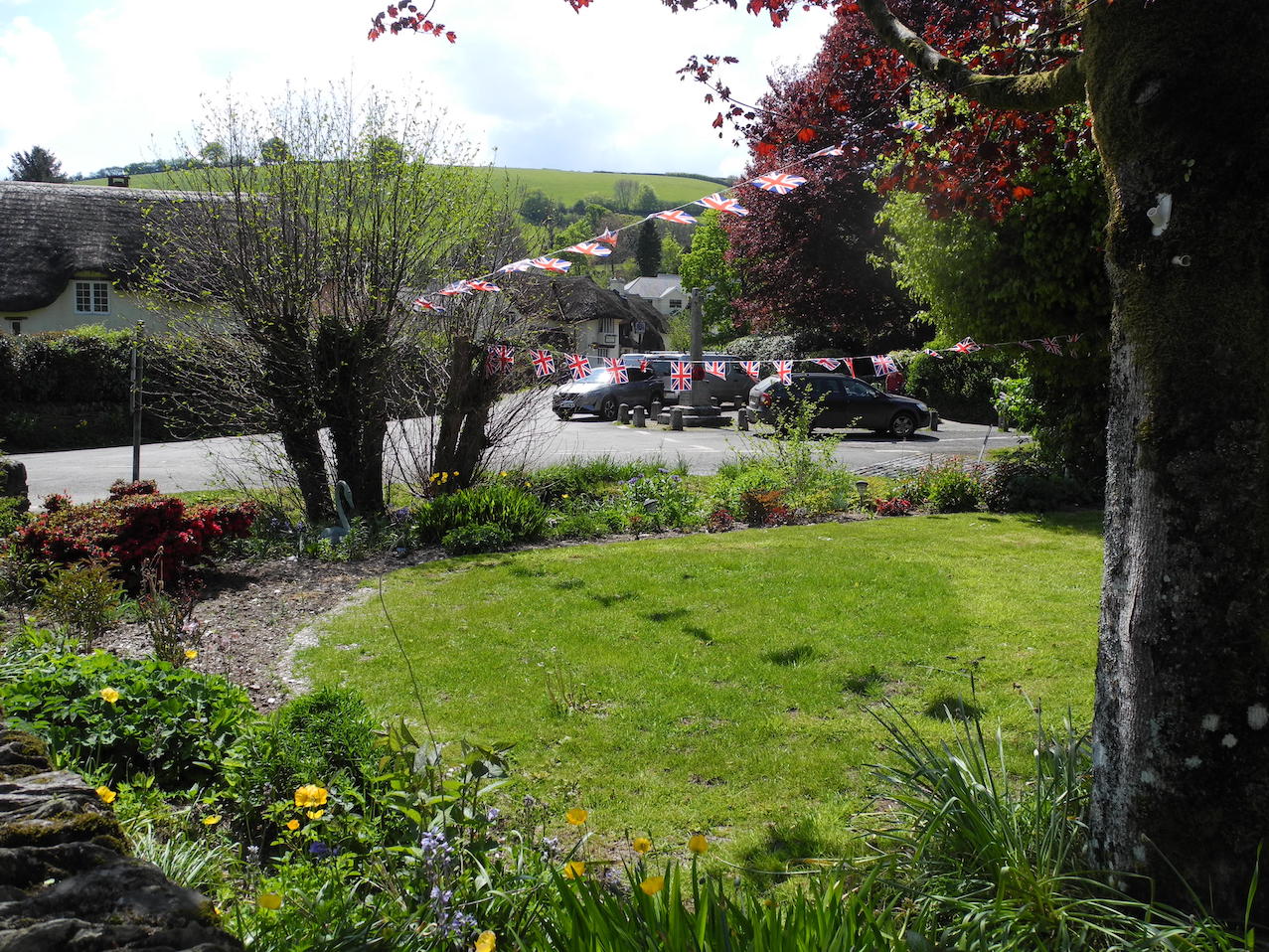
As we paused for lunch between the conference and our walk. I noted the martins swooping to gather mud from the stream, swifts swooping high above quaint thatched cottages their evocative screams of summer drifting through the valley and swallows those birds that are surely the true harbingers of summer. It was easy to be lulled into a sense that all is good. And yet I looked into the stream a tributary of the Exe and noted the sediment and algae in the stream and how this was far more pronounced below the ford where cars frequently drove through washing mud and oil from their undersides.
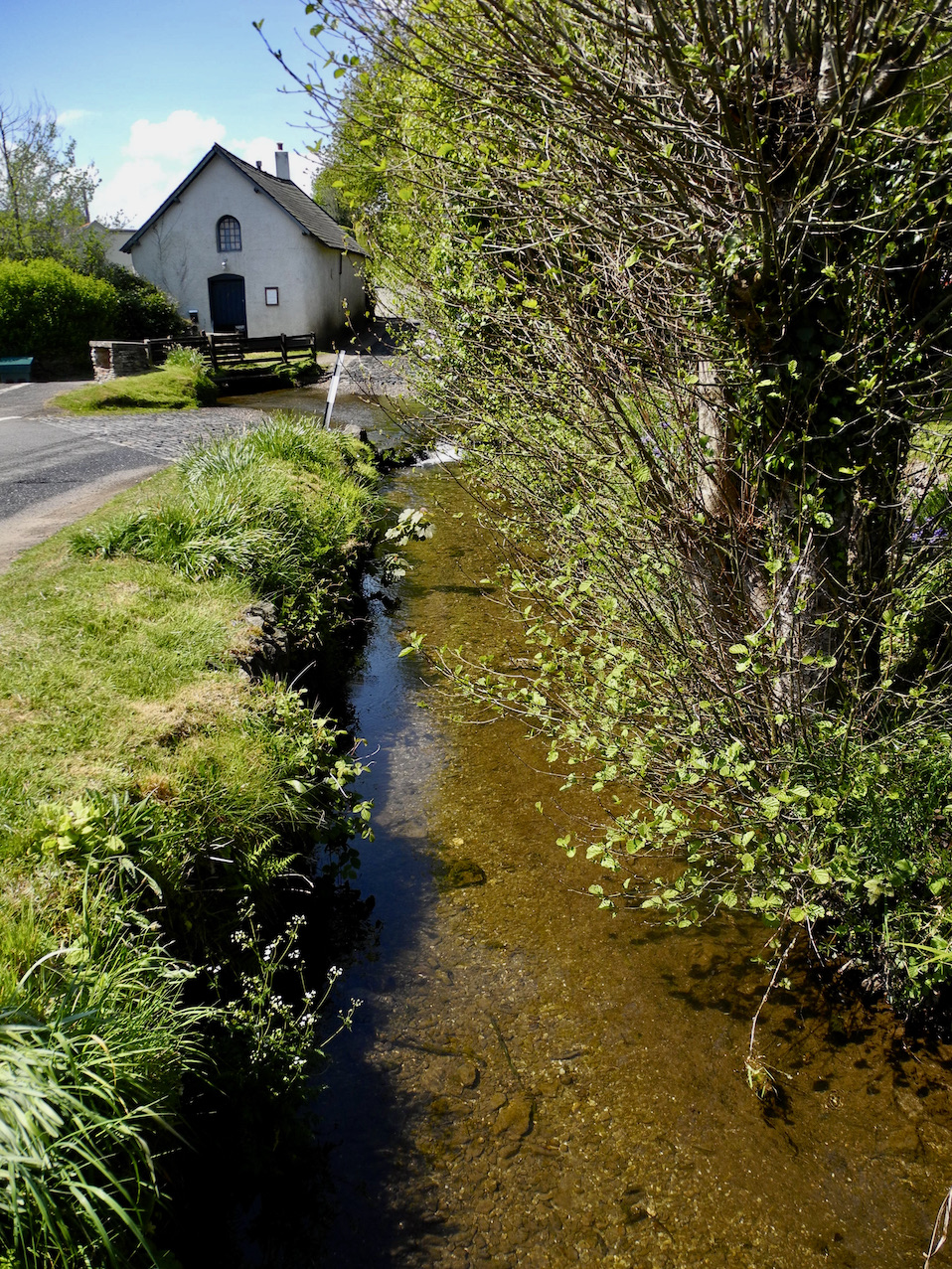
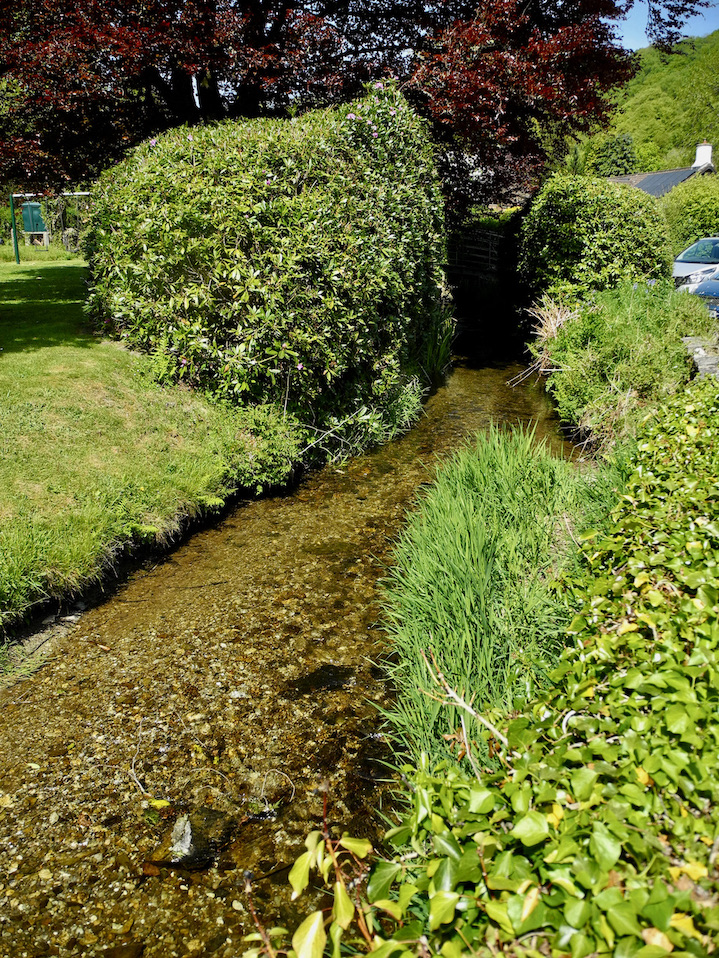
A lady walked her dogs that splashed across the river potentially releasing powerful toxins designed to kill the ticks that are now prolific throughout the seasons, a result of infrequent winter frosts. The lack of rain throughout the spring reduces dilution of this toxic mix that enters the river. All is certainly not as it should be and the insidious invisibility is perhaps the greatest concern.
It brings hope that our eyes are slowly opening to the many issues and yet there are still too many in society who are either oblivious or turn the proverbial blind eye for it is convenient not to see.
On a final word many thanks to the Exmoor Society for all the hard work that is involved in hosting and organising such a thought provoking and informative event.
SPEAKERS PROFILES BELOW
Kate O’Sullivan
Chair of the Exmoor Society
Kate O’Sullivan has been chair of The Exmoor Society since September 2022, where she has concentrated on nature recovery. For many years she worked at the BBC as a science documentary producer, making films for the BBC-2 Horizon series and then at BBC Films. Since moving to Exmoor, she has worked on the family’s farm at Old Stowey to improve the pasture, hedges, woodland, and soil. She has a master’s in the history and philosophy of science from Imperial College.
Sarah Bryan
Chief Executive of ENPA
Sarah Bryan is the Chief Executive of the Exmoor National Park Authority. She has worked on Exmoor for more than 25 years, since joining the organisation as a Conservation Officer (Landscape) in 1992. She has used her roles to engage with landowners and land managers, forging strong partnerships with external agencies and partners, and leading key conservation and landscape projects. She has a degree in Environmental Science from the University of East Anglia, a second degree in Landscape Design from Manchester University, and is a Chartered Member of the Landscape Institute.
Professor Alistair Boxall
Professor, Environmental Science
Alistair is a Professor in Environmental Science in the Environment Department and Director of the NERC-funded ECORISC Centre for Doctoral Training. Alistair’s research focuses on understanding emerging and future ecological and health risks posed by chemical contaminants in the natural environment. Alistair is a past member of the Defra Advisory Committee on Hazardous Substances and past Chair of the Pharmaceutical Advisory Group of the Society of Environmental Toxicology and Chemistry. He regularly advises national and international organisations on issues relating to chemical impacts on the environment and has published extensively on the detection, fate, effects and risks of emerging contaminants (including pharmaceuticals, nanomaterials and transformation products) in the natural environment.
Professor Sir Dieter Helm
Professor of Economic Policy at the University of Oxford
Dieter Helm is a Professor of Economic Policy at the University of Oxford and Fellow in Economics at New College, Oxford. From 2012 to 2020, he was Independent Chair of the Natural Capital Committee, providing advice to the government on the sustainable use of natural capital. Dieter provides extensive expert advice to UK and European governments, regulators and companies on his three specialist areas: Energy & Climate; Regulation, Utilities & Infrastructure; and Natural Capital & the Environment. In his book ‘Legacy: How to Build the Sustainable Economy’, Dieter looks at what the sustainable economy would look like and what it would take to live within our environmental means. Dieter is a Vice President of the Exmoor Society, a Vice President of Berkshire, Buckinghamshire and Oxfordshire Wildlife Trust, and Honorary Fellow, Brasenose College, Oxford.
Toby Diggens
Landscape Architect
Toby is the founder of Digg & Co. Studio, an ecological landscape practice which focuses on large-scale nature recovery projects and ecosystem and landscape master planning. He is also on the committee of the River Exe’s dedicated habitat and in-river restoration and improvement group – RETA (River Exe and Tributaries Association). Toby and his team oversee and design projects where ecological uplift, enhancement and revival are core principles. Their work spans river restoration, farm and estate designs and urban projects which prioritise wild self-willed systems to proliferate with people at their heart. He lives near Exmoor, where he and his wife Bella holistically graze 500 acres of mixed natural farmland and wilderness with their herd of pedigree Red Devon’s.
Professor Charles Foster
Writer and academic
Charles Foster’s books include Being a Beast (a New York Times Bestseller), Being a Human, Cry of the Wild, and The Screaming Sky. He is a Fellow of Exeter College, Oxford.
Mark Lloyd
CEO, The Rivers Trust
Mark Lloyd read Geography at St. Catherine’s College, Oxford and then completed a Master’s in Environmental Water Management at Cranfield. He founded Thames21 in 1994, a charity cleaning up London’s rivers, which he led for 11 years. He has since been CEO of a number of angling and conservation organisations before taking up his current role in 2019 as Chief Executive of The Rivers Trust, the umbrella body for the rivers trust movement, which comprises 67 independent charities in the UK and Ireland employing over 550 staff. The Rivers Trusts work in partnership to restore wild, healthy, natural rivers, valued by all.
Dr Rose O’Neill
CEO, Campaign for National Parks
Dr Rose O’Neill is Chief Executive of the Campaign for National Parks, the independent charity dedicated to the National Parks of England and Wales. Founded in 1936, Campaign for National Parks brings together a campaigning collective of organisations, including the Exmoor Society, and individuals from all walks of life united in a common cause: nature-rich National Parks for everyone. In previous roles, Rose was principal social scientist at Natural England and headed the rivers programme at WWF-UK. Rose has a Master’s in geology and a PhD in environmental science. Rose lives just outside the South Downs National Park and loves exploring its chalk streams with her young family. She is a trustee of Wessex Rivers Trust and a member of Natural England’s Landscape Advisory Panel.
Dr David Smith
South West Water
David is South West Water’s Natural Resources Team Manager. The team of over 20 leads SWW’s work on species, habitats, biosecurity and Invasive Non-Native Species (INNS), fish and eels. It also delivers Upstream Thinking, SWW’s flagship catchment management programme. David has worked in the water industry since 2010, leading on peatland restoration, catchment management, and biodiversity, and he previously worked as a farm advisor and an ecologist for National Parks and led the Exmoor Mires restoration Partnership. David is an ecologist from a farming and horticulture background, with a D.Phil in peatland regeneration in Northern Ireland. He has co-authored publications with research partners at Exeter, Bristol, and other UK Universities on peatland restoration hydrology, water quality, greenhouse gas modification, and vegetation changes.
James Thomas
National Trust, North Devon Riverlands Team
The Riverlands Team are working across four portfolios at Arlington Court, West Exmoor, Hartland, and Woolacombe. They are restoring significant areas of wetland habitat across North Devon. This is being done by identifying areas where drainage and modification of watercourses have had a detrimental impact on the environment, and working closely with natural processes to allow the hydrology of the land to function more naturally. Working with partners at a landscape scale, a multitude of opportunities are being explored to maximise gains; from simple measures such as creating new ponds and scrapes to increase open water, strategically blocking land drains and drainage ditches to expand wetland habitat, all the way through to wet woodland creation and floodplain reconnection and resetting the land through innovative ‘stage 0’ style techniques. These measures will all combine to hold water across a wide area for longer, thereby improving water quality, reducing flood risk, acting as carbon storage, improving drought resilience, and boosting opportunities for wildlife, increasing abundance and biodiversity.

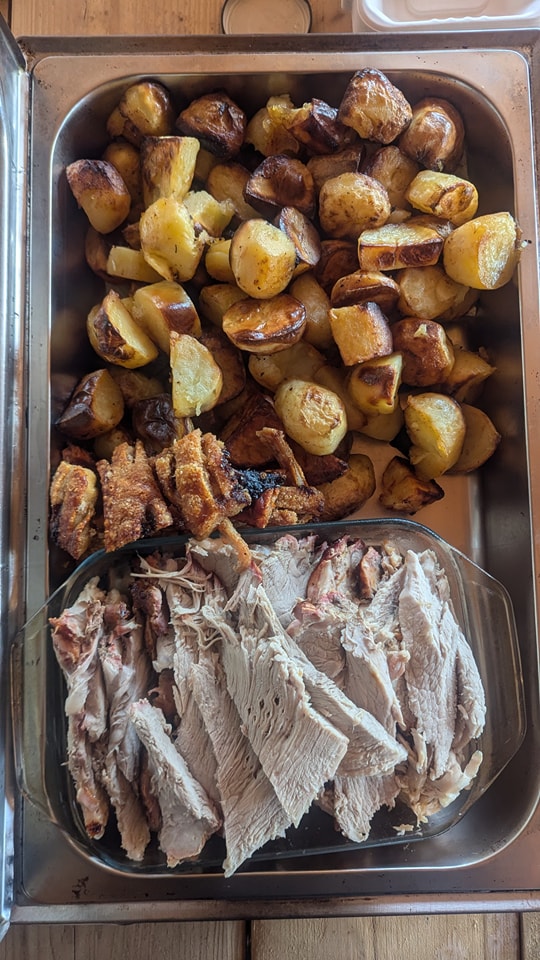
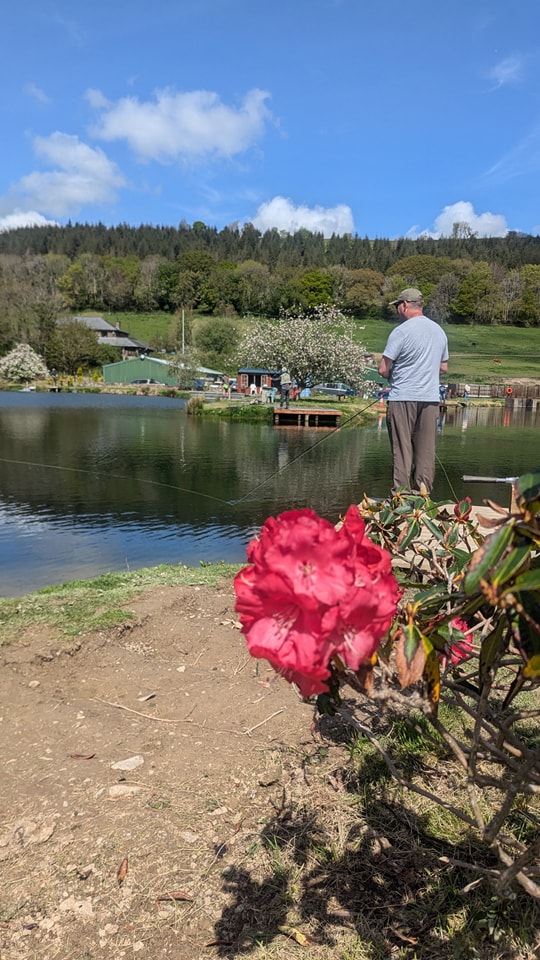
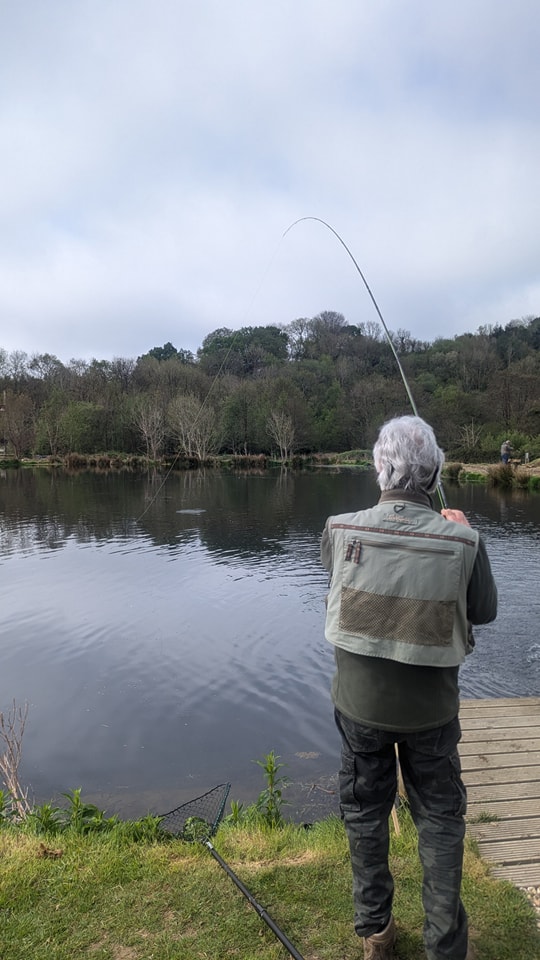
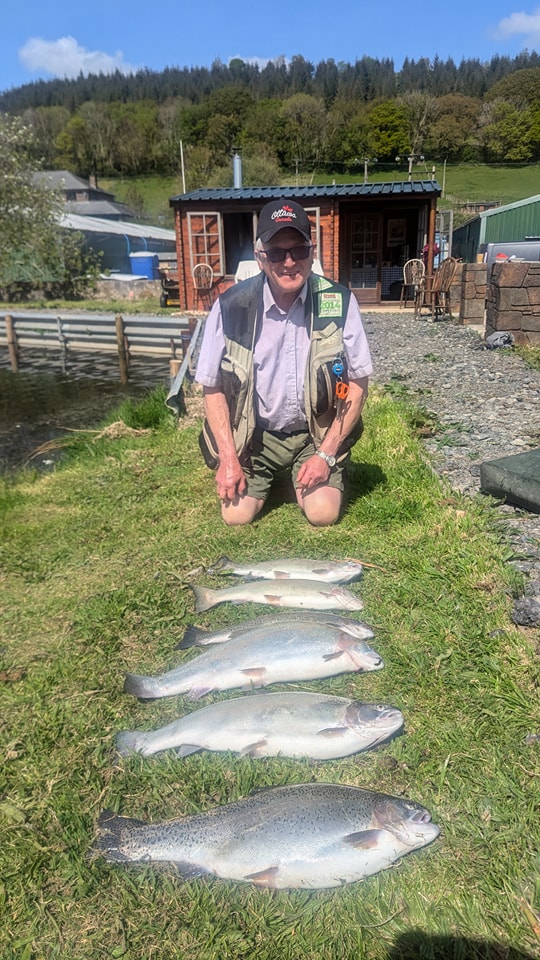
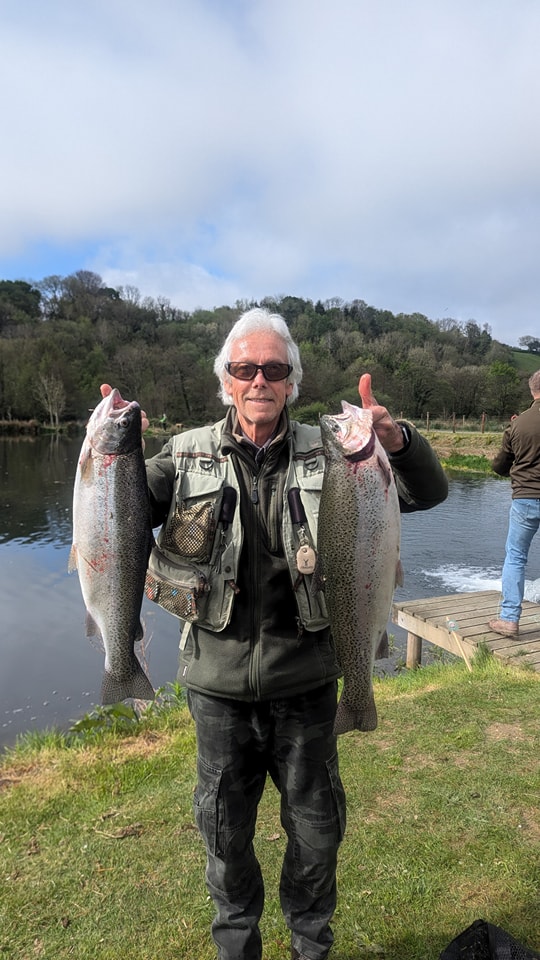
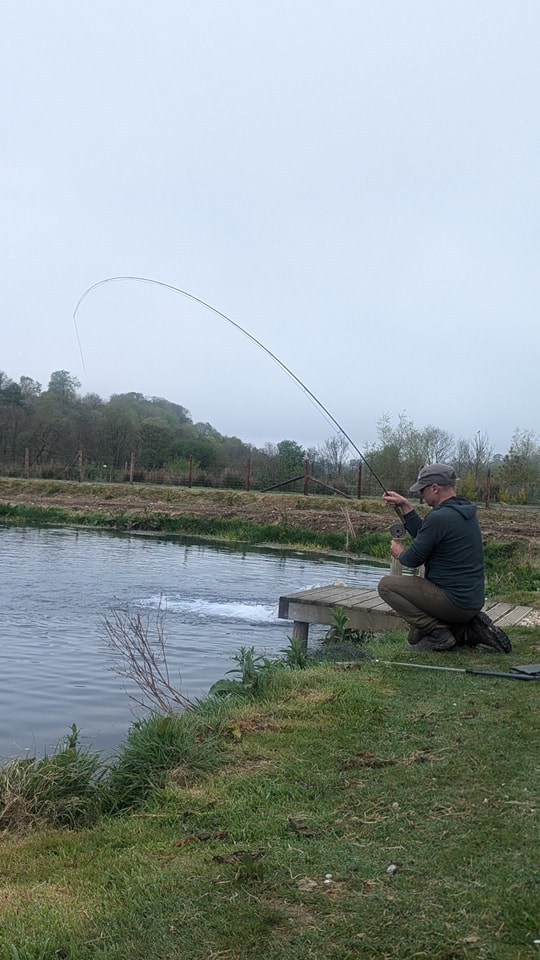
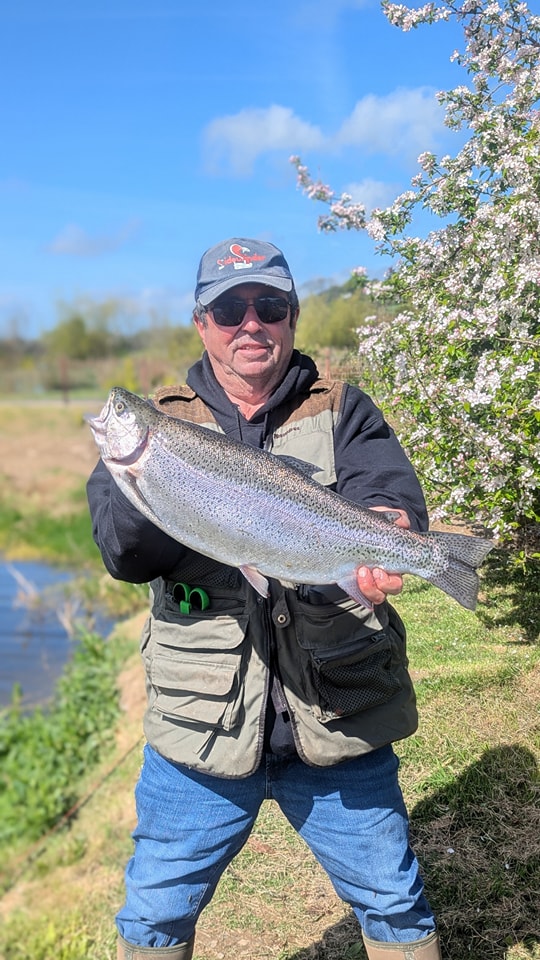
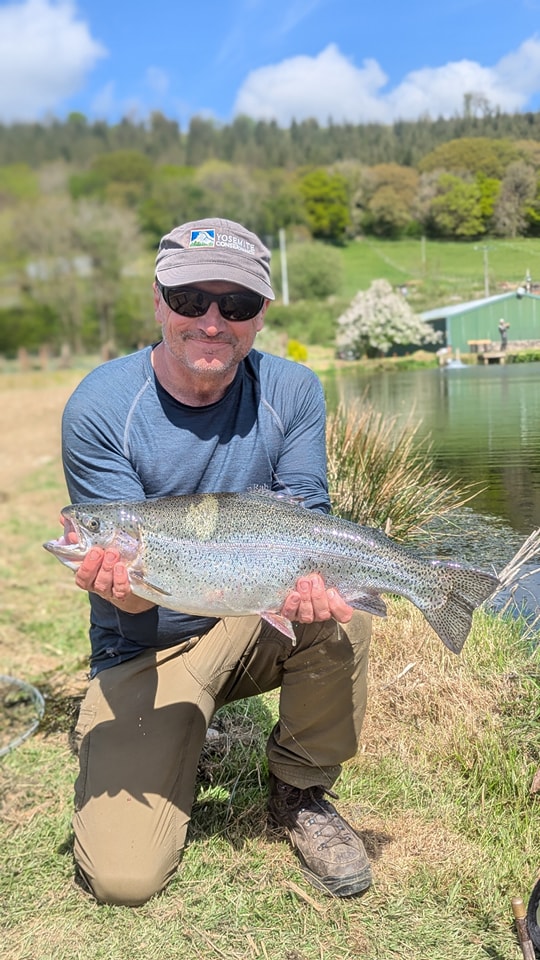
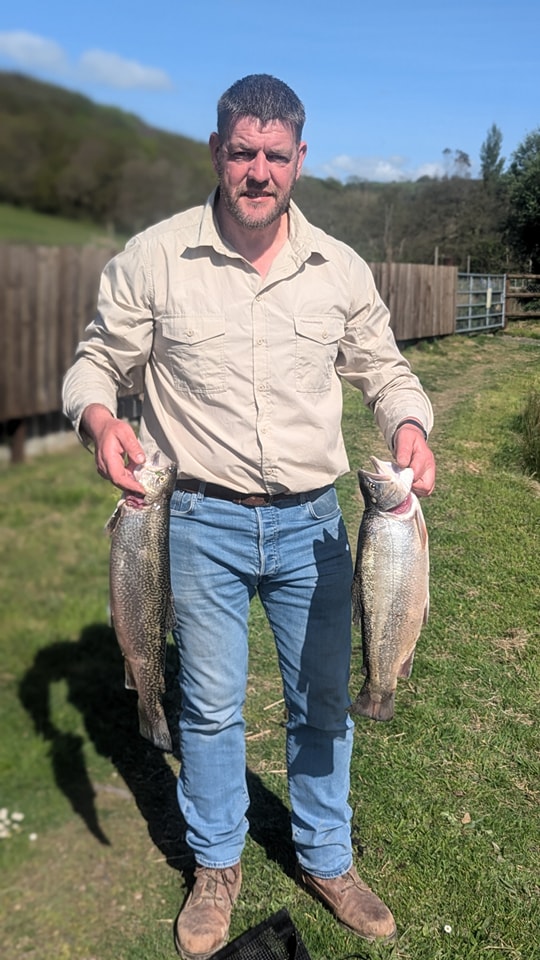
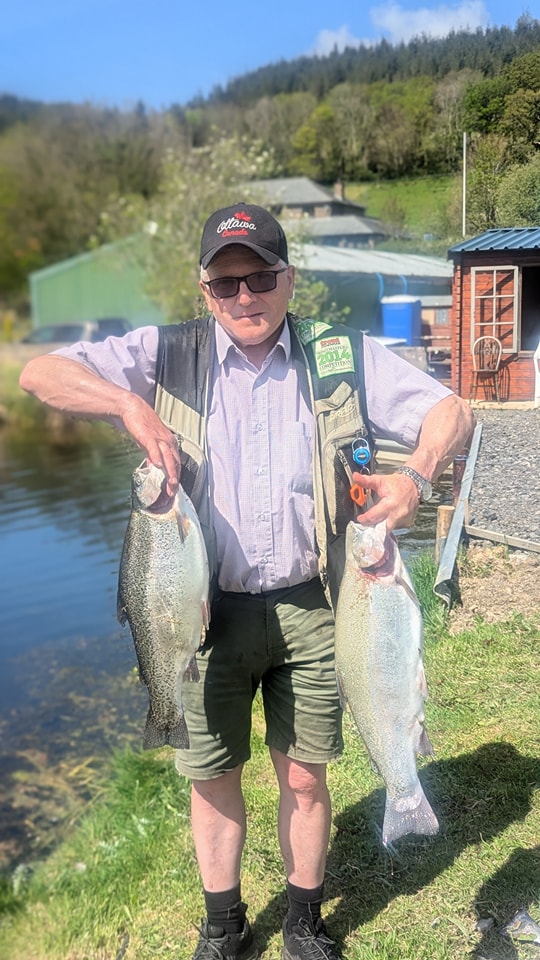
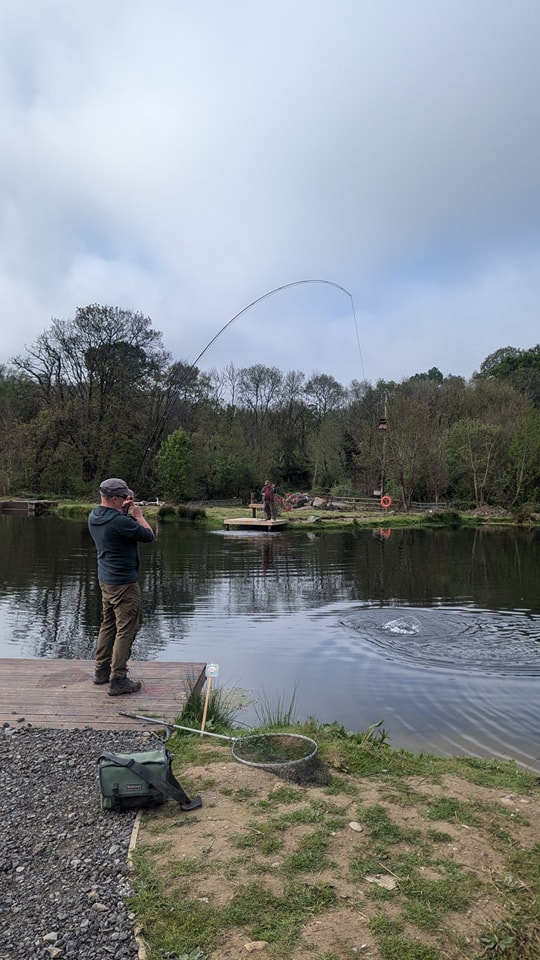

Whilst the algae blooms witnessed along the coast are nothing new there are a couple of observations I will make. First the bloom often referred to as May bloom is earlier than normal and secondly the amount of surface froth is unusual and whilst large spring tides and a big surging swell have contributed I personally consider that this could be largely due to extensive run off from rivers into the Bristol Channel carrying worrying levels of enrichment from agricultural run-off and sewage overflows.
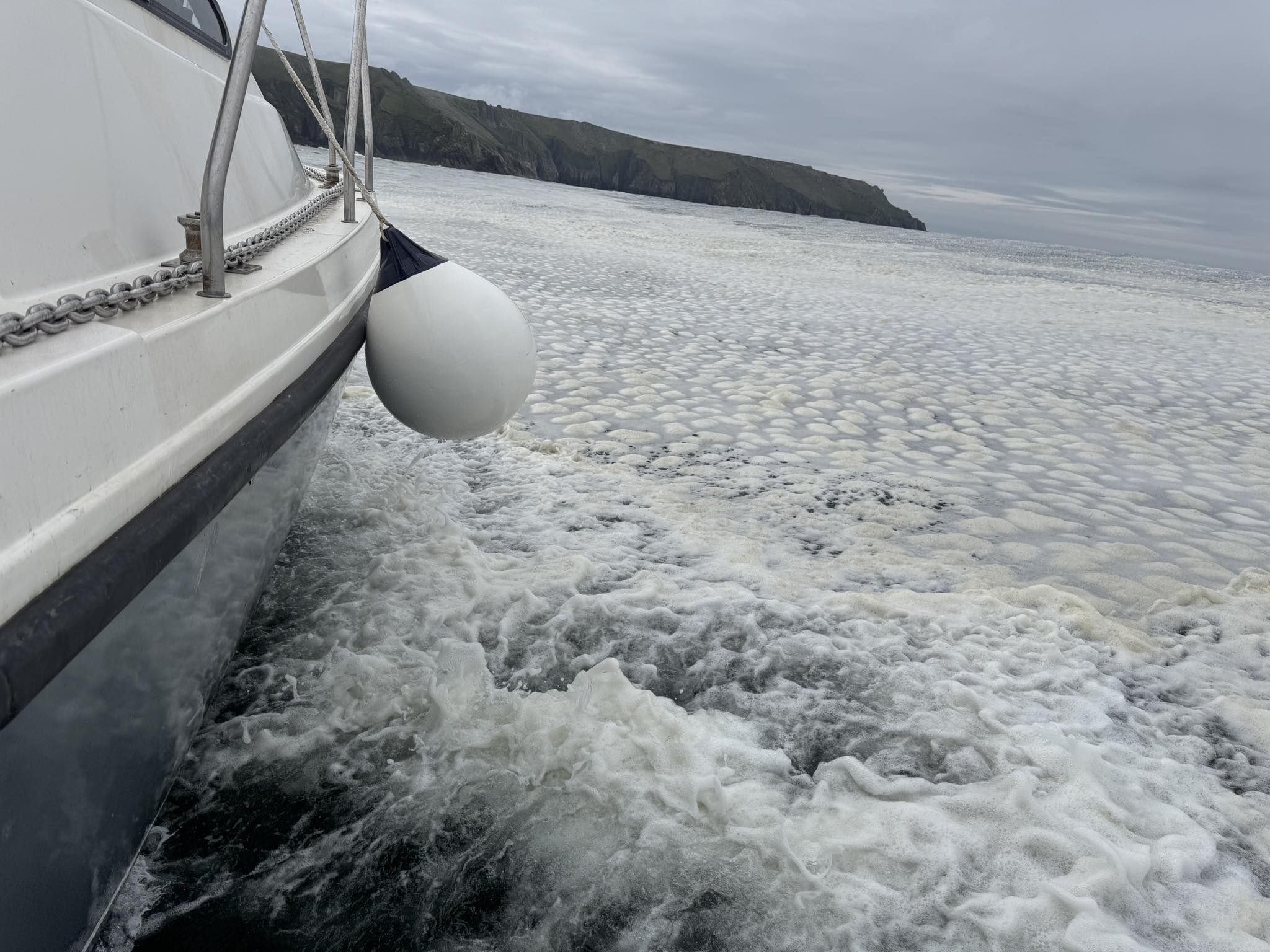
There is increasing awareness of the many issues that impact upon water quality with considerable focus on rivers with many groups with environmental interests now joining together to campaign for a revision into how we manage our environment. This is certainly complex and requires extensive effort across government and society.

South West Lakes Trust Trout Fisheries Report
April 2025
Although the temperatures have at last started to rise during the day, nights have been cool, meaning that water temperatures are still low, and while there have been some insect hatches during warmer spells during the day, the trout are still generally remaining in the deeper water, with most lakes requiring a sunk line to find fish. The Trust has run a number of successful introductory days at the rainbow waters in conjunction with the clubs, with many newcomers managing to catch a fish. Most lakes are still at top level.
Fishing:
Kennick – Fishing improved as the month progressed, with the overall monthly average of 4.6 fish per rod improving to a weekly average of 5.3 by the end of the month. Fish have been well spread out in the deeper water around the lake, with The Lawns, Clampitts, The Lodge Bank and Oak Tree Point fishing particularly well, with boat anglers also picking up fish in the mid channel. Sinking and Intermediate lines have been the preferred tactic, generally with a slow retrieve. Buzzers have been hatching during warmer spells, although most fish have taken deep-fished nymphs (Damsels, Buzzers, Hares Ear and Pheasant Tail Nymphs), or more often lures (Black Tadpole, Poodle, Tequila Blob and a selection of different coloured Boobie patterns). The best fish of the month (and at Kennick so far this season) was a 5lb 4oz rainbow, caught by Russell Bridgeman; Michael Peppitt caught a rainbow of 4lb 9oz, while Lee Cann caught a 4lb rainbow. Many of the fish caught contained black buzzers.
Siblyback – The early season success at Siblyback continued throughout April, with anglers averaging 4.5 fish per rod, with fish feeding throughout the water column, and being caught on Floating, Intermediate, and Sinking lines, generally fishing with a slow or medium retrieve. Crylla Bay, West Bank, Stocky Bay and Two Meadows produced the best sport, with fish taking a selection of nymphs (Montana, Damsel, Buzzer), lures (Blobs, Orange Snakes, Tadpoles and Scruffy Tigers), and even some dry patterns (Foam Hawthorn, Hopper and Grey Wulff) when midges were hatching. Nine teams of four took part in this year’s Snowbee Team Bank Competition, with 126 fish landed in total; the Kennick ‘A’ Team (John Hern, Darren Penfold, Paul Wicks and Alex Venn) caught 24 fish, weighing in at 35lb 2oz to win the competition, while Andrew Fotheringham caught the best fish of the day – a fine rainbow of 3lb 12oz. Ron Wilday (from Liskeard) enjoyed an excellent day’s sport, catching nine rainbows to 1lb 8oz fishing in Crylla Bay.

Burrator – Weekly averages varied between 0.6 and 2.8 fish per angler, with the best sport to be had at Longstone, Back Bay, Sheepstor and Pig’s Trough. Fish tended to be in mid to deep water, when either a sinking line, or a floater with a long sink-tip and a slow retrieve proved to be the most successful tactic. A few fish were taken from the surface using a Black Gnat, Bob’s Bits, CDC or Black Hopper, but the majority preferred either a sunk nymph (Pheasant Tail, Montana, Damsel or Hares Ear) or lure pattern (Tadpole, Orange Fab, Orange Zonker).

Stithians – The sport continued to improve as the month progressed and the conditions turned milder, with anglers averaging 3.5 fish per visit. The fish tended to be nearer the surface, with floating lines and a sink-tip fished with a slow retrieve proved to be the most successful method. Goonlaze, Hollis Bank, Pub Bay and the deeper water by the dam produced the best sport. Successful fly patterns included Cormorants, Orange and Black Blobs, Orange FAB, Damsel and Montana nymphs, as well as a few fish taking dry Black Gnats, Stithians Mayfly and Black Klinkhammers.
Colliford – Apart from one week, when a very strong easterly wind made the fishing difficult, anglers averaged 2.7 fish per rod, with fish being found in the deep water by the dam, as well as along the East bank, Pines, Menaridan Point and the West Arm. Generally floating lines fished with a variety of retrieves (fast strips, followed by very slow) worked well. Good hatches of Midges and Olives, as well as the odd Hawthorn and Beetle on the water meant that fish were looking up to feed, and could be caught on dry Hawthorns, Black Gnats, Claret Hoppers, Daddies and Beetles. Sub-surface feeders took Hares Ears, Mini Tadpoles, Damsels, Zulus and Soldier Palmers.
Fernworthy – The fishing was slower to pick up on this high exposed Dartmoor water, although weekly averages did pick up to 2.4 fish per visit toward the end of the month. The South bank and water below the Fishing Hut proved to be the most productive, with the browns taking Bibio, Hares Ear, Zulu and Goldhead Damsel, as well as rising to Beetles, Klinkhammers and Hoppers on the stiller, warmer days, when midges were hatching.

Roadford – The good sport at Roadford continued throughout the month, with anglers averaging 3.5 browns per visit. Floating or intermediate lines with a varied retrieve (Slow, Medium, and jerky fast strip) produced the best sport, with the best locations including South Wortha, Daveys Bank and Gaddacombe. Although the occasional fish would rise to a Green Hopper, most fish were taken on subsurface patterns (Black Tadpole, Mini Scruffy Tiger, Damsel and Olive Buzzer).
Please see the Trust’s website (www.swlakestrust.org.uk/trout-fishing) for more information on buying tickets, boat availability and booking, and forthcoming events.
Chris Hall (April 2025)

The rivers are starting to fine down after the rains and there is encouraging news in that a fresh run salmon has been tempted by an angler fishing the River Mole. There are also stories of other fish contacted briefly on the Taw.
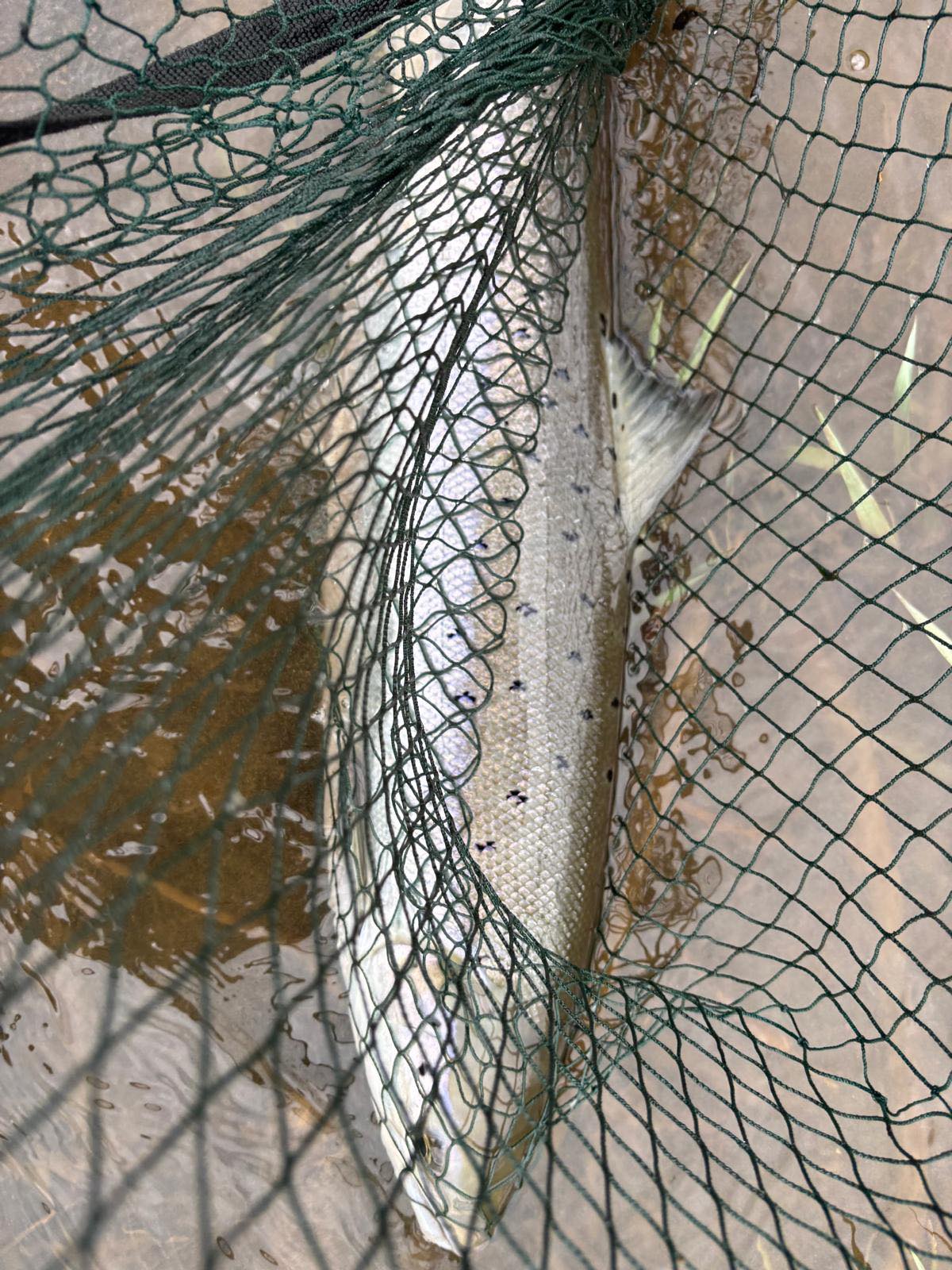

I fished a River Torridge beat that I have not fished for two years and relished revisiting an old friend. The river was perhaps a little too coloured but the height was good and it felt good to drift the fly in expectation over familiar lies. Many thanks to my wife Pauline for capturing a few images. The sound of chiff chaffs and woodpeckers provided a pleasing soundtrack to our visit.
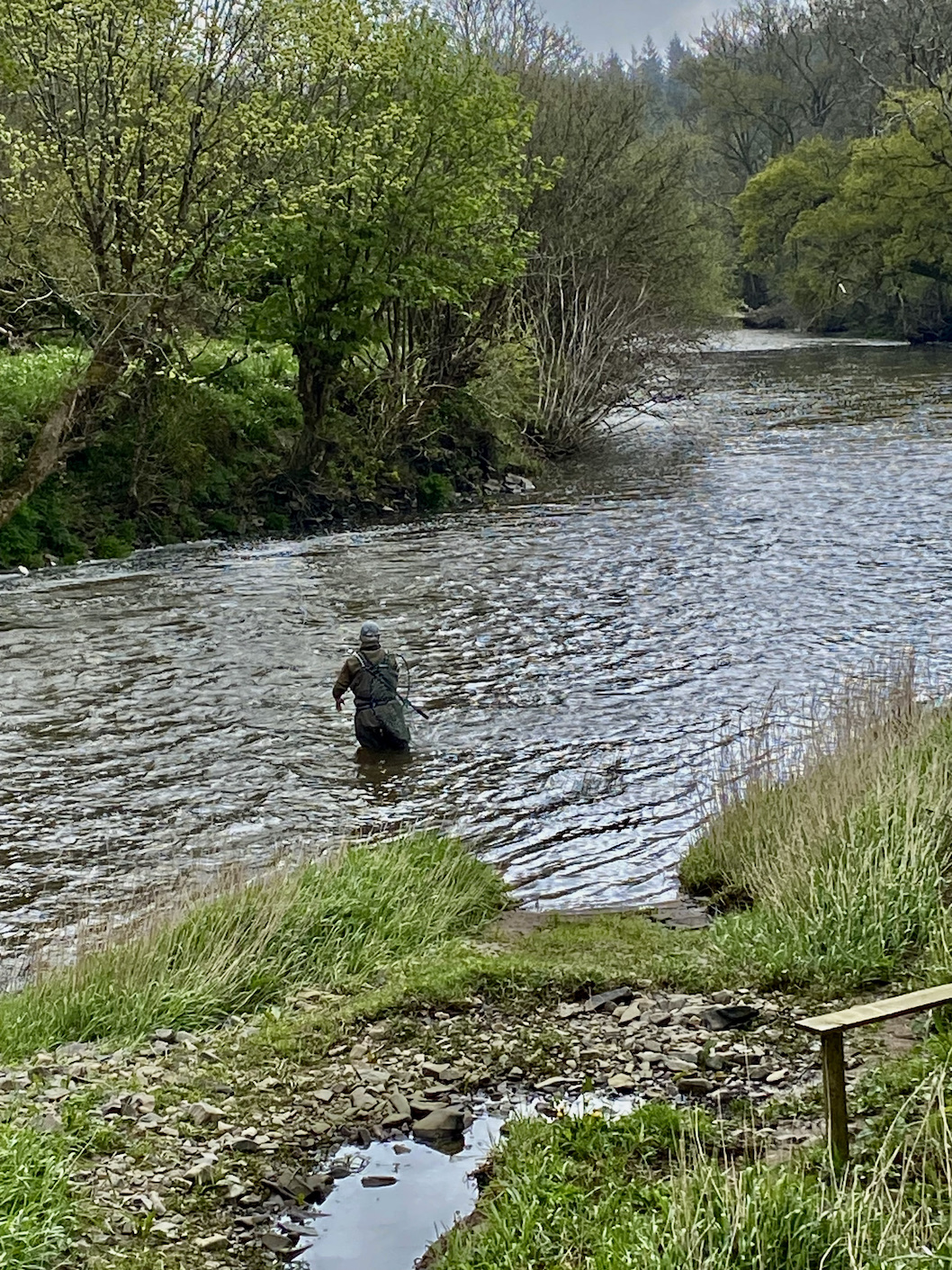
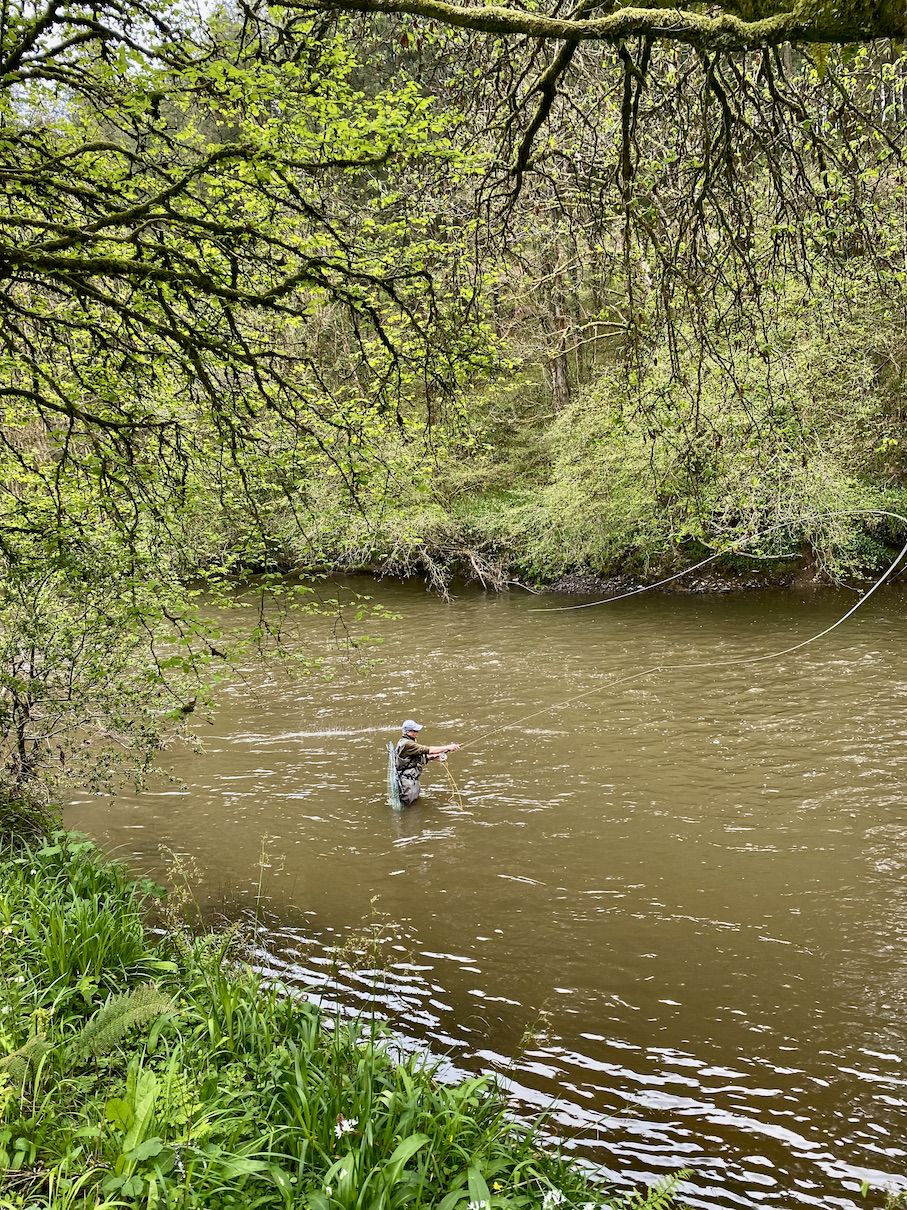
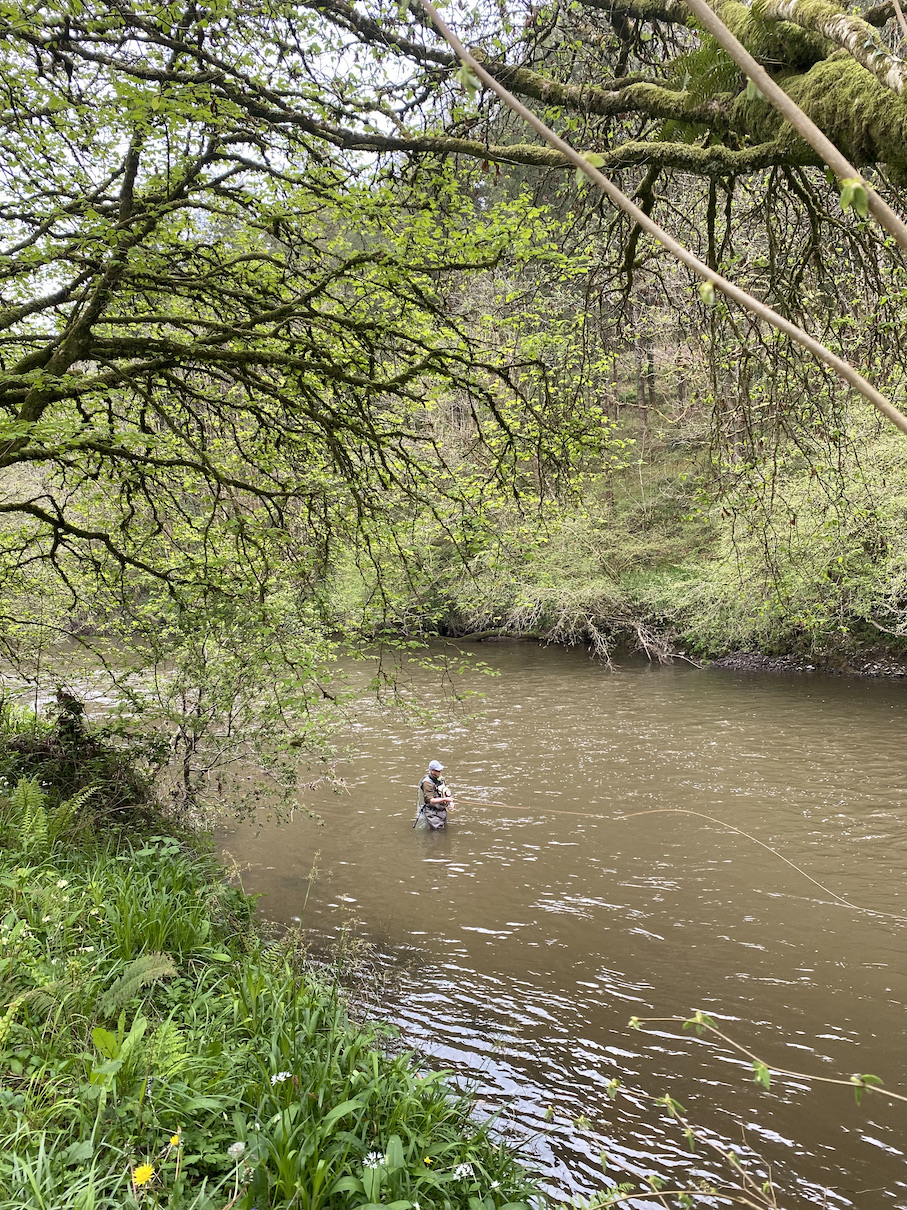
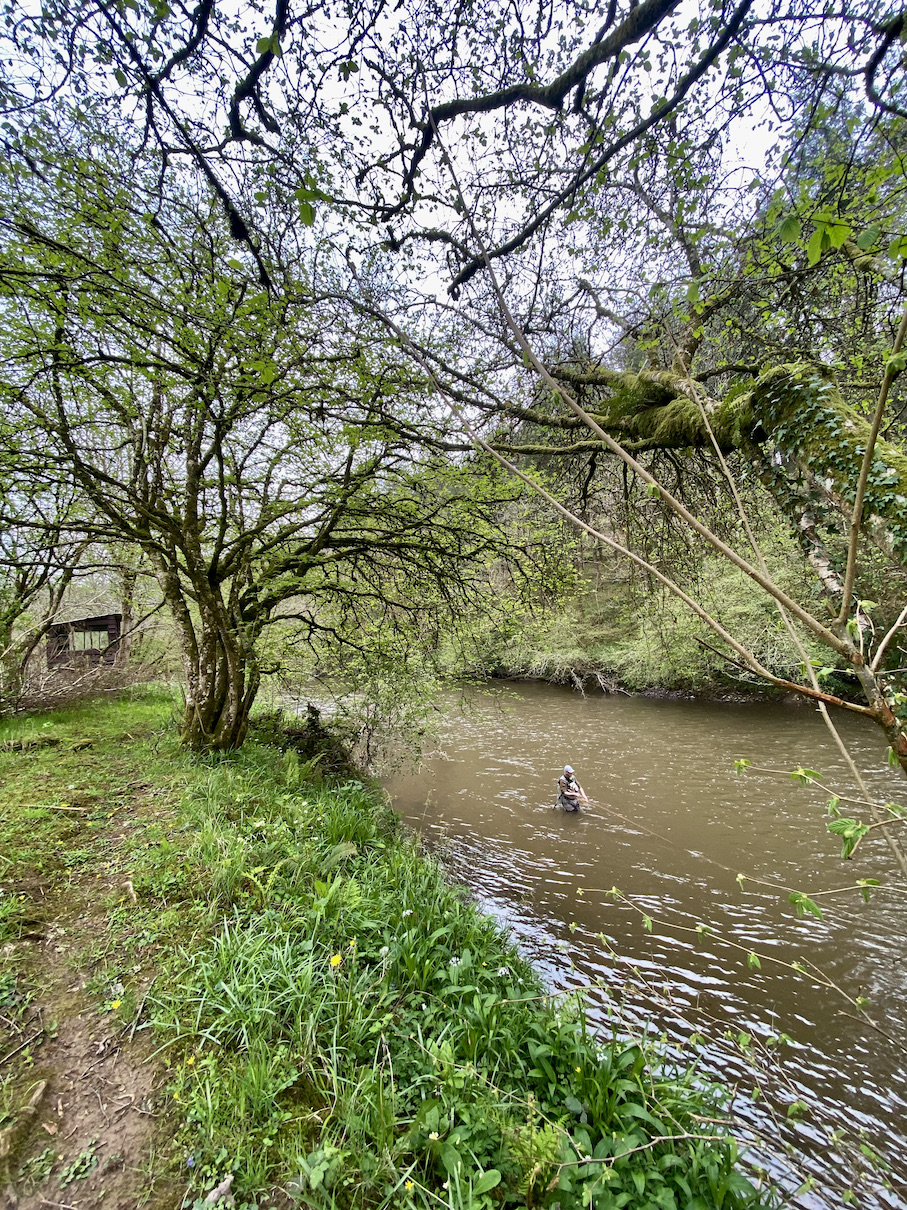
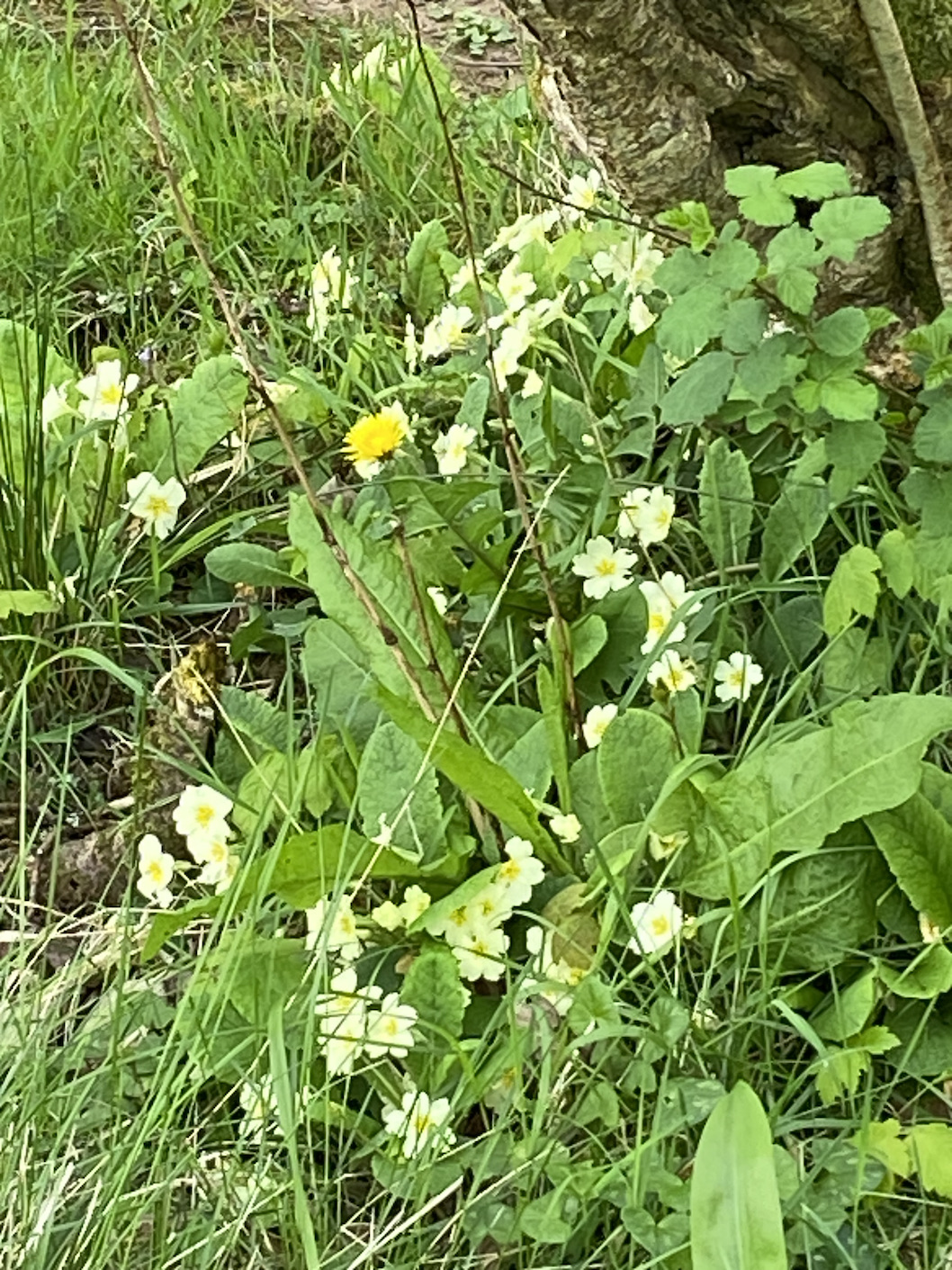
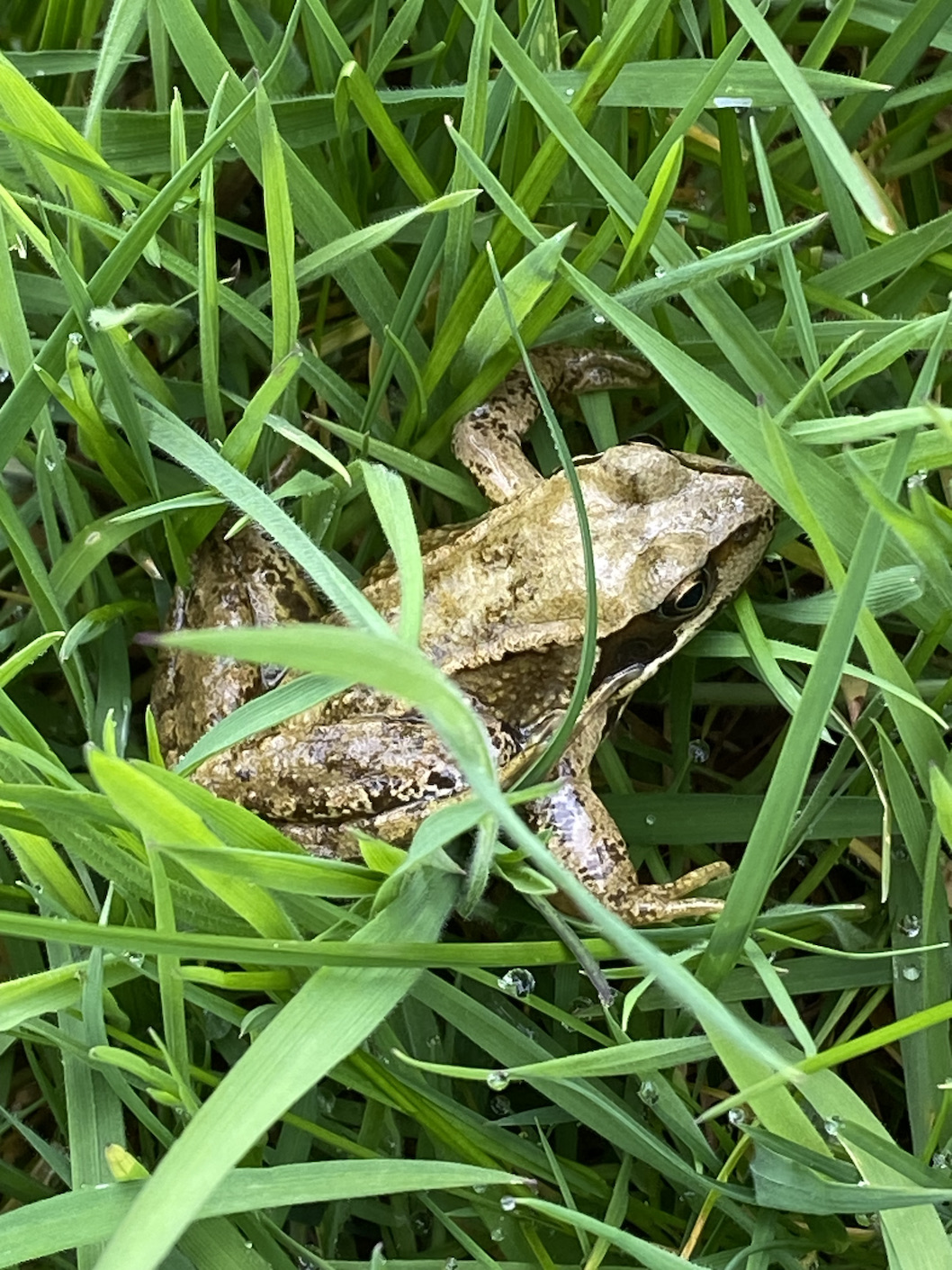
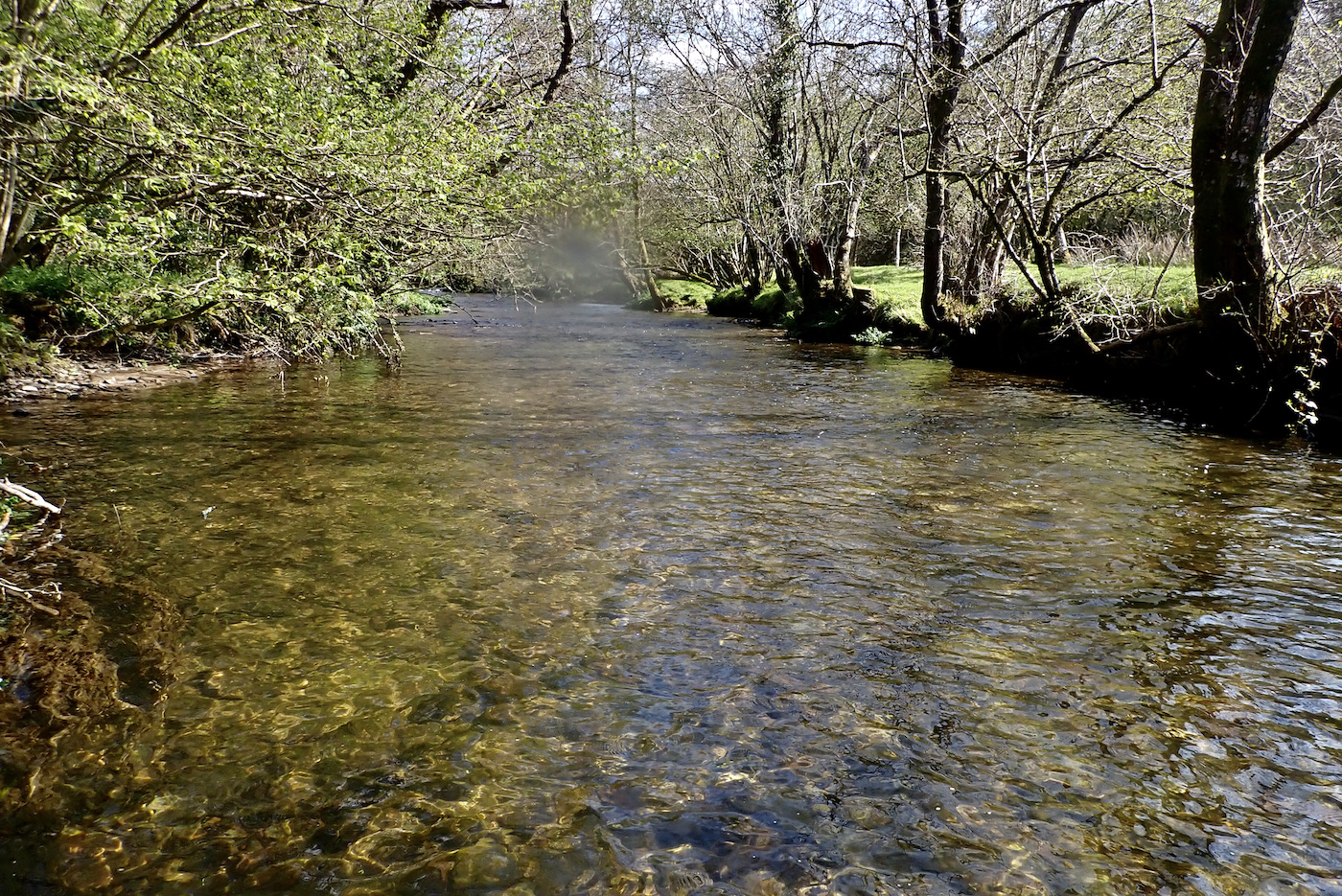
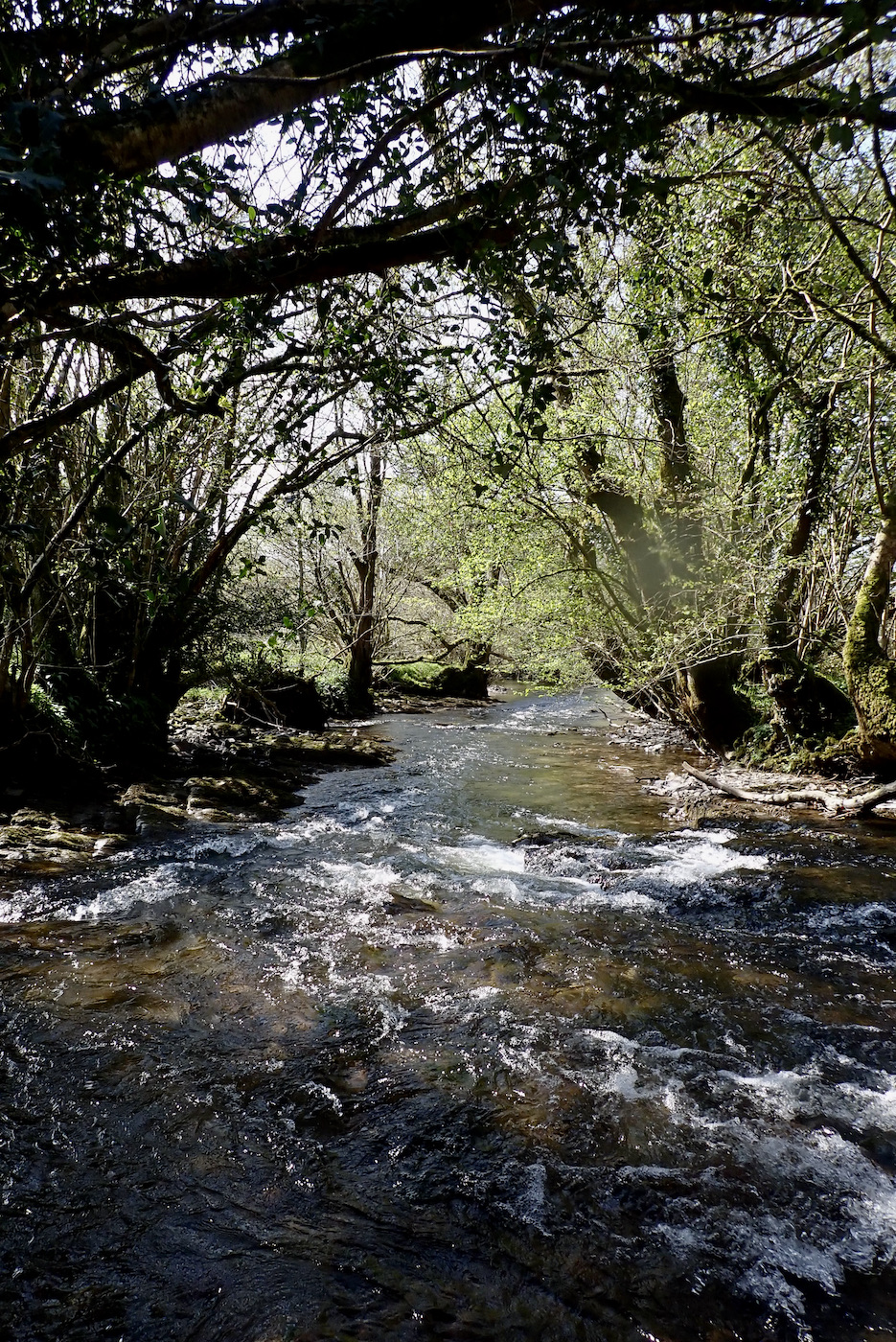 Eventually I found a couple of better fish in a shady section of river the best an absolutely stunning wild brown trout of 12”.
Eventually I found a couple of better fish in a shady section of river the best an absolutely stunning wild brown trout of 12”.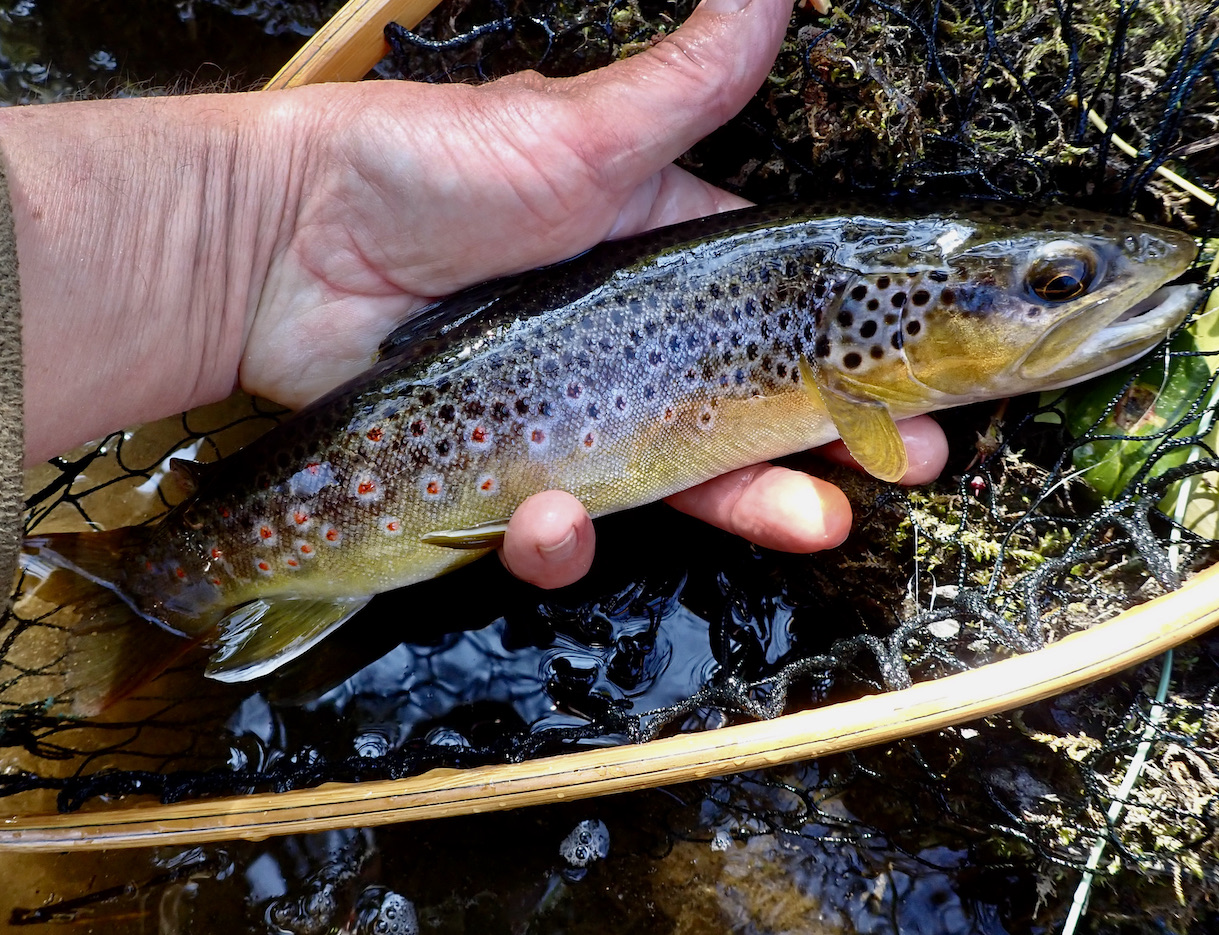
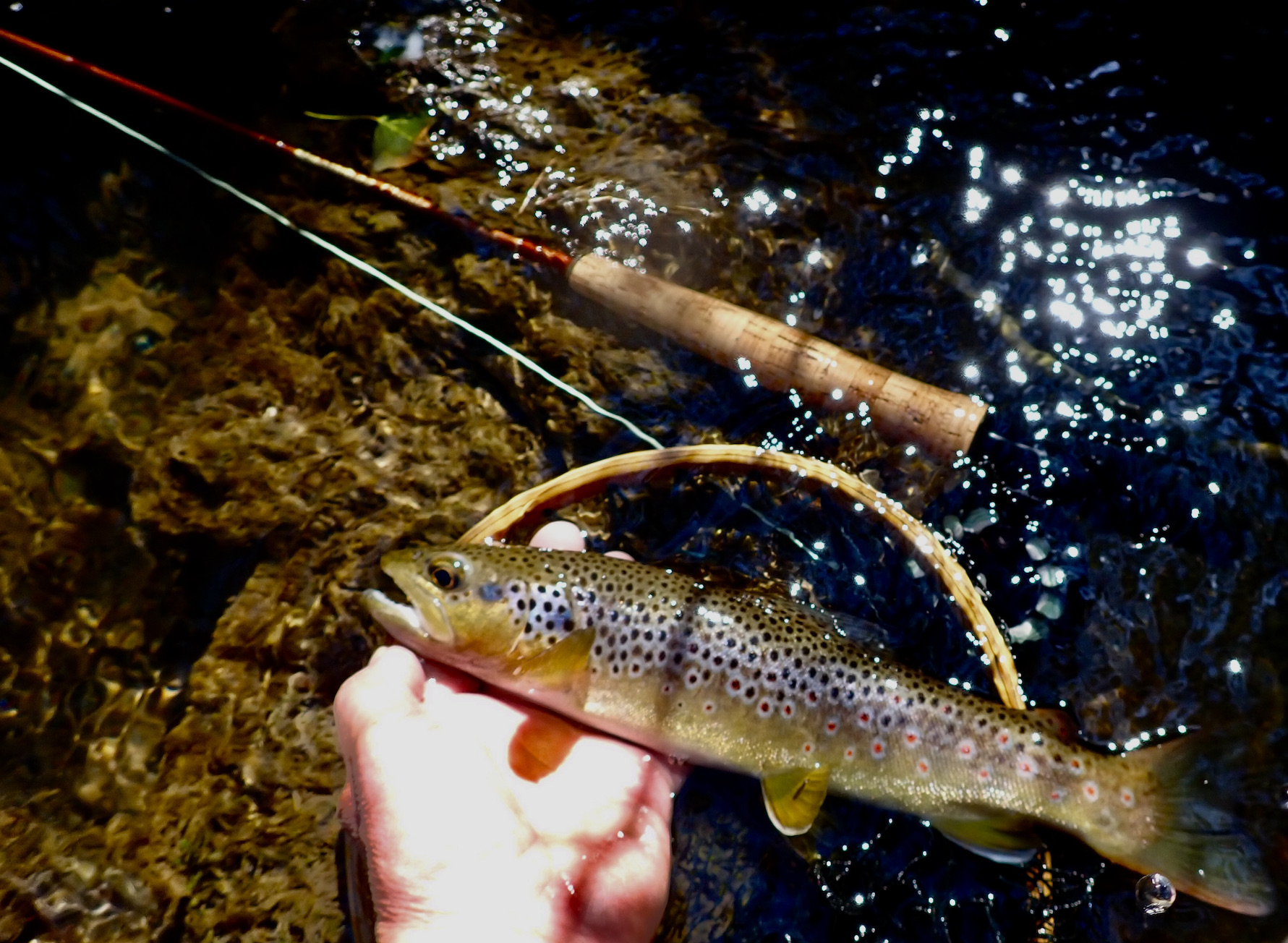

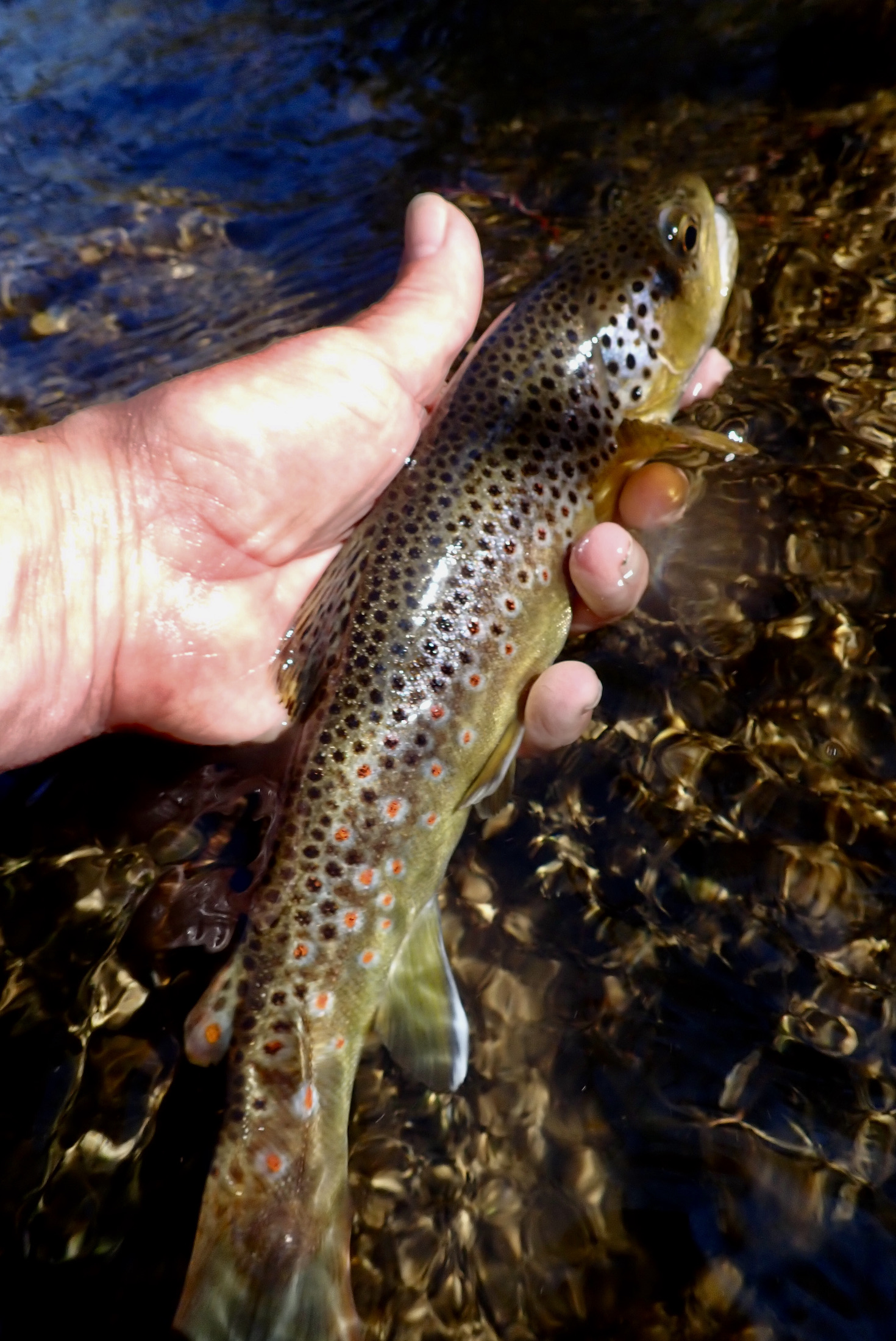
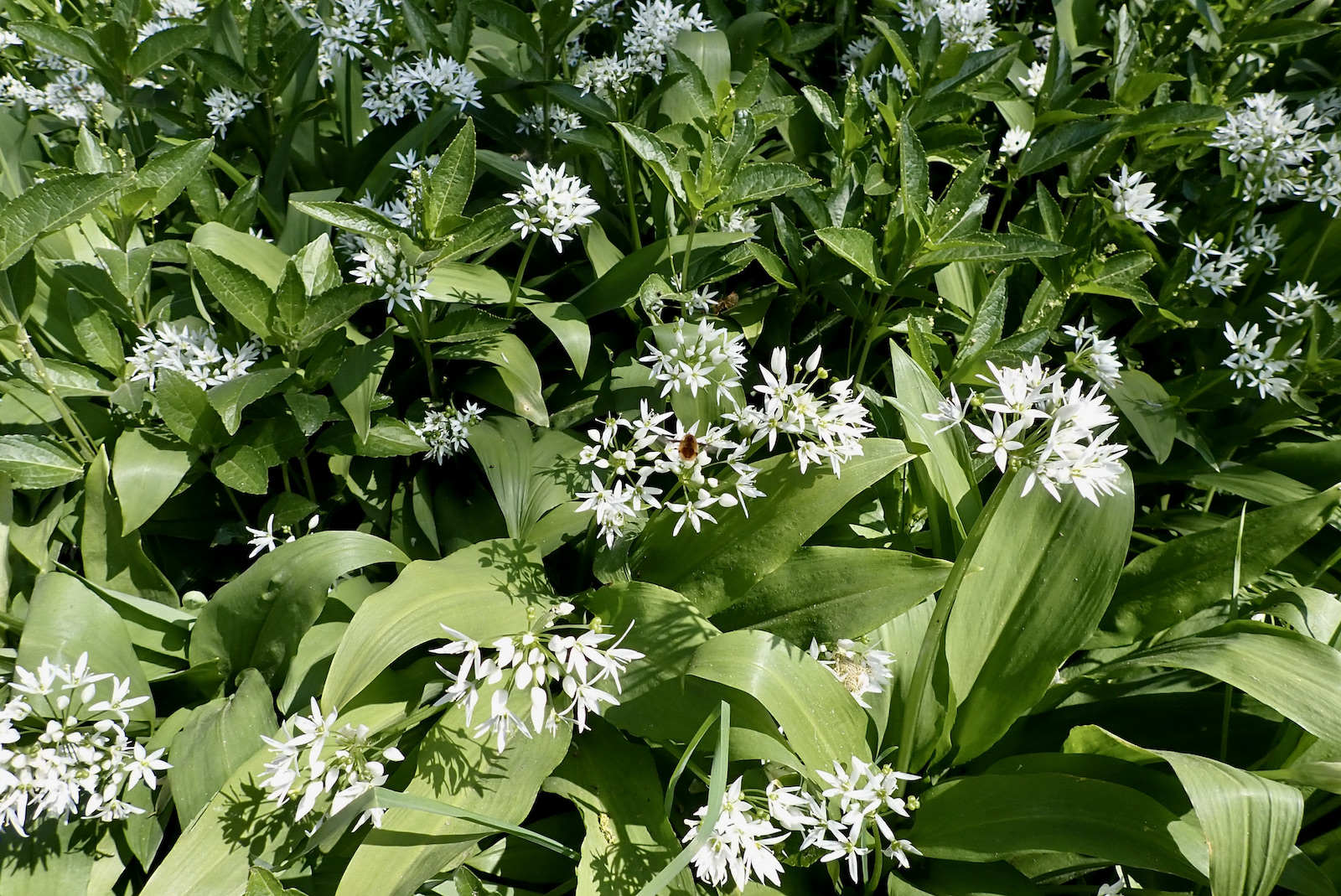
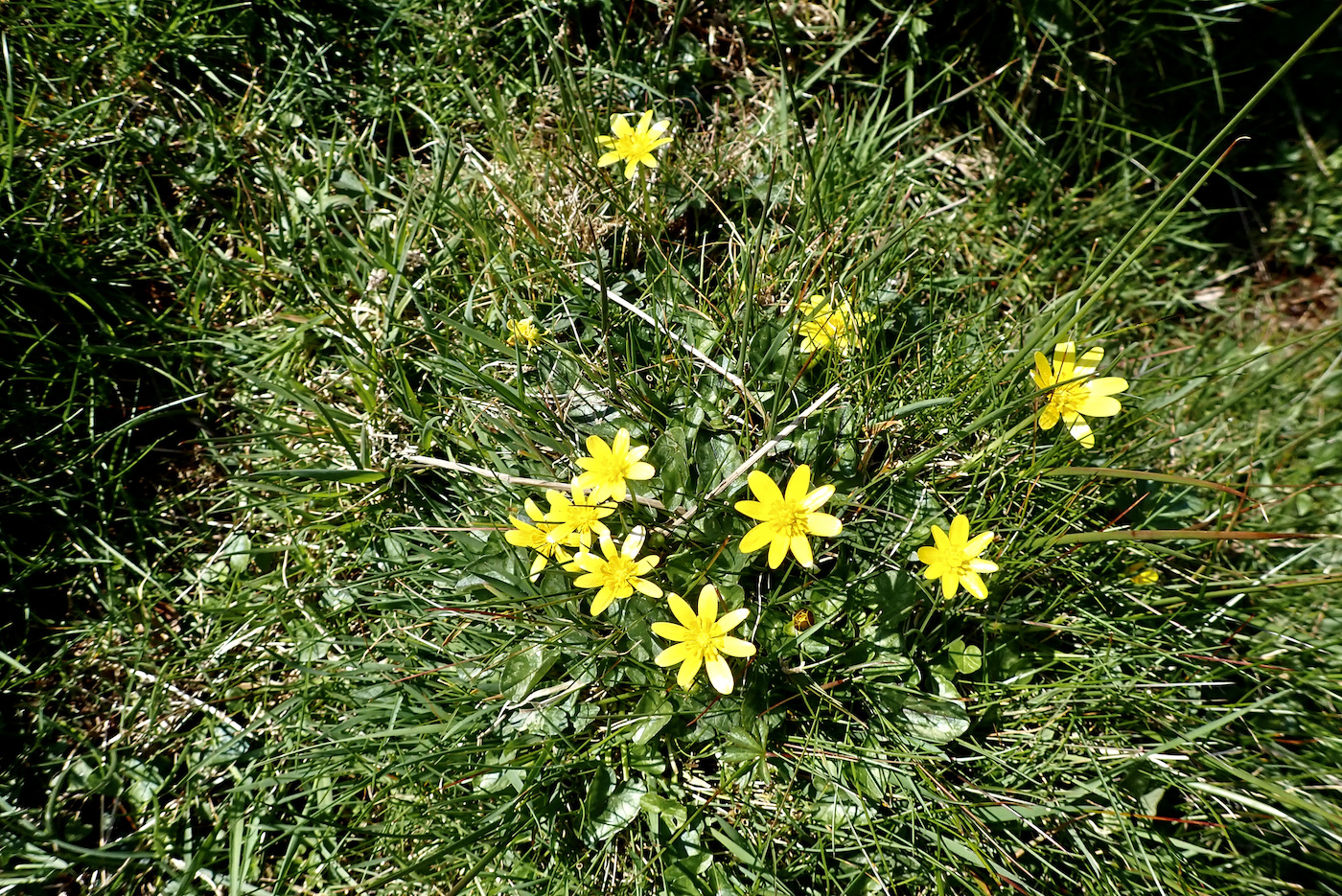

http://www.lance-nicholson.co.uk

Next month you will find Seven Fables at The Exmoor Society and Exmoor National Park Authority Spring Conference. This year their focus is on rivers and among the invited speakers are nature writer Professor Charles Foster, Mark Lloyd ~ CEO of the Rivers Trust, Professor Sir Dieter Helm and Toby Diggens of Dig & Co.
